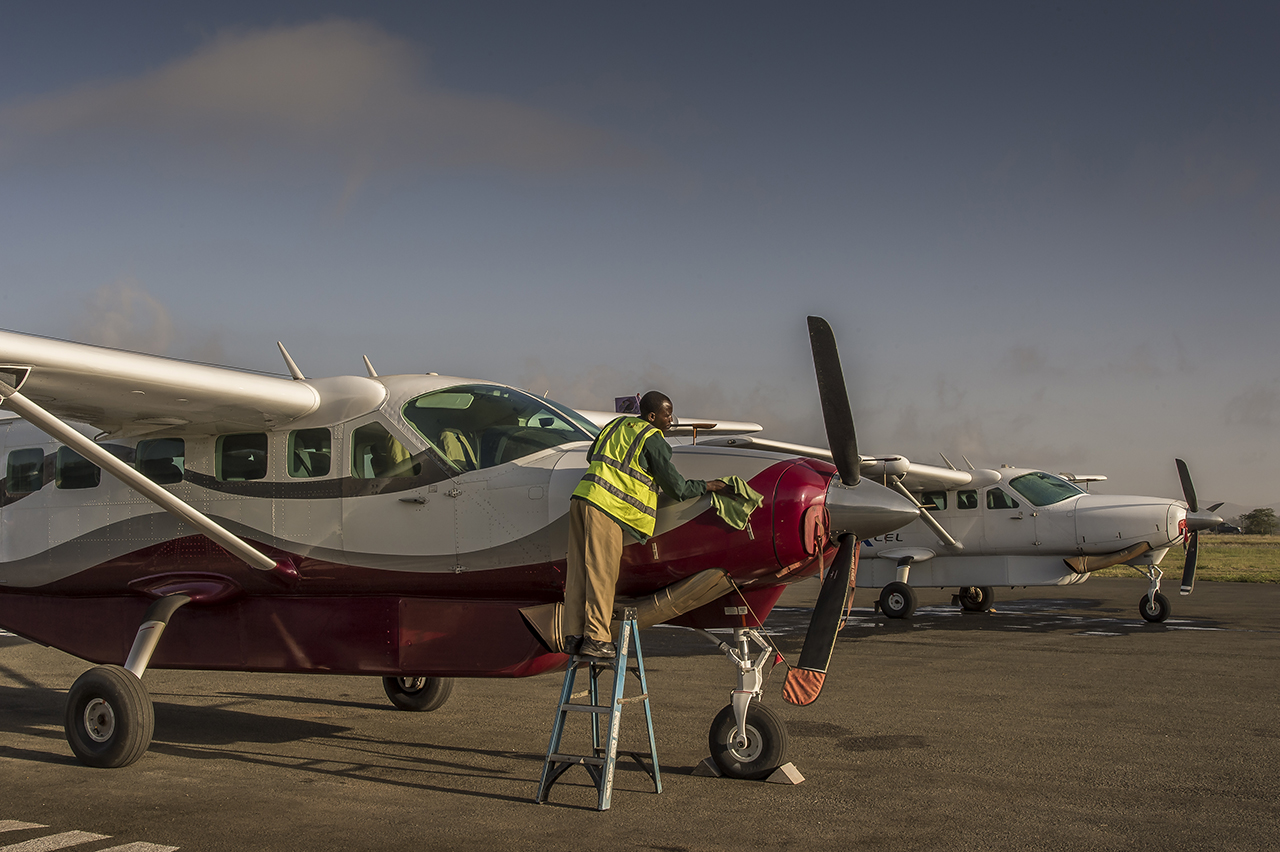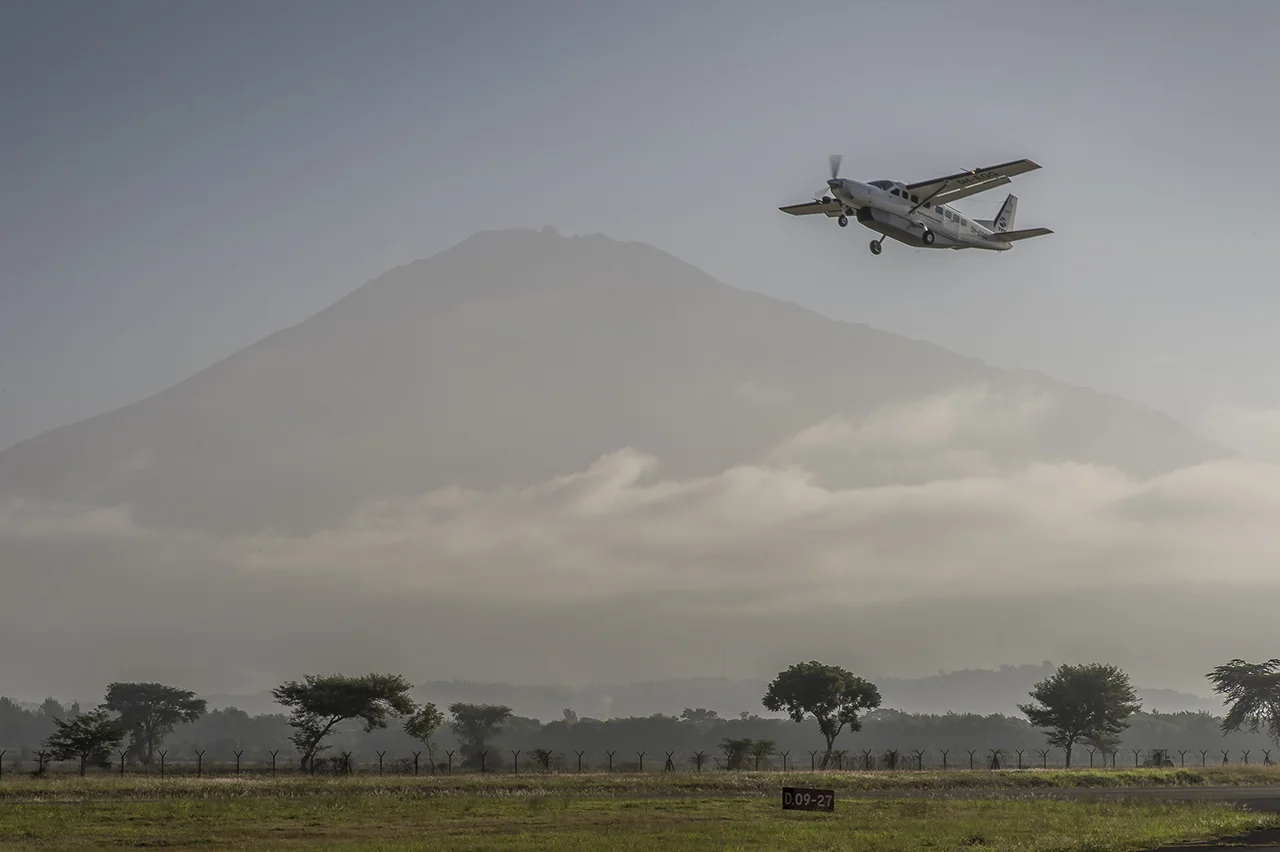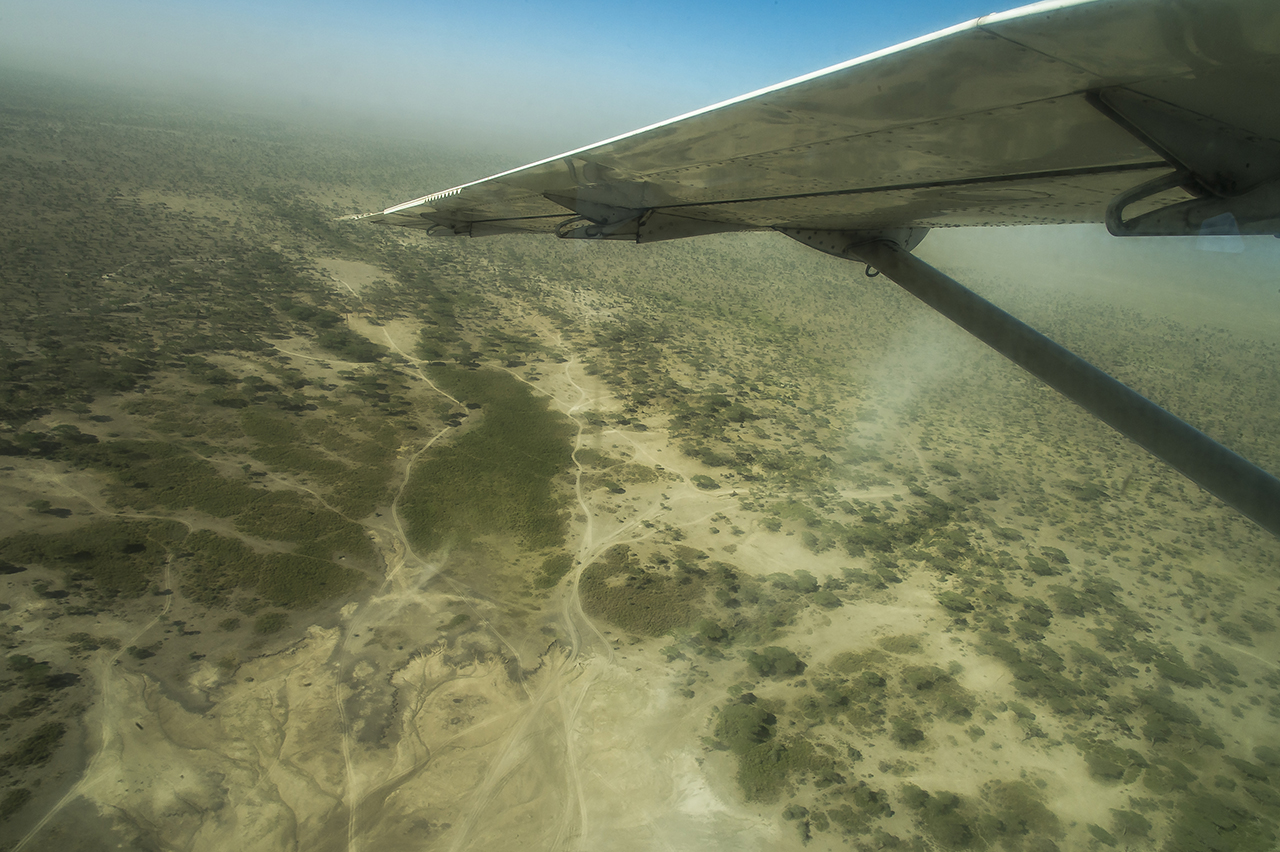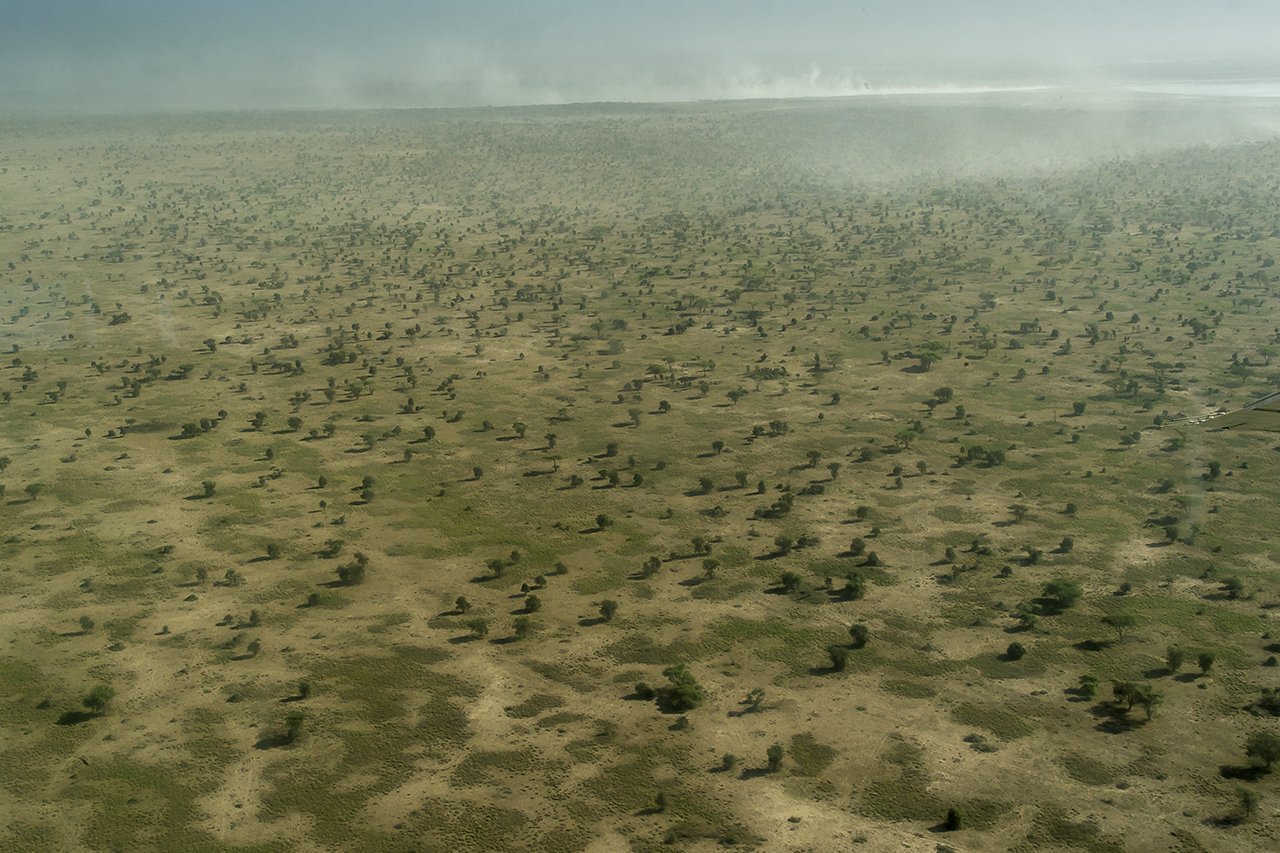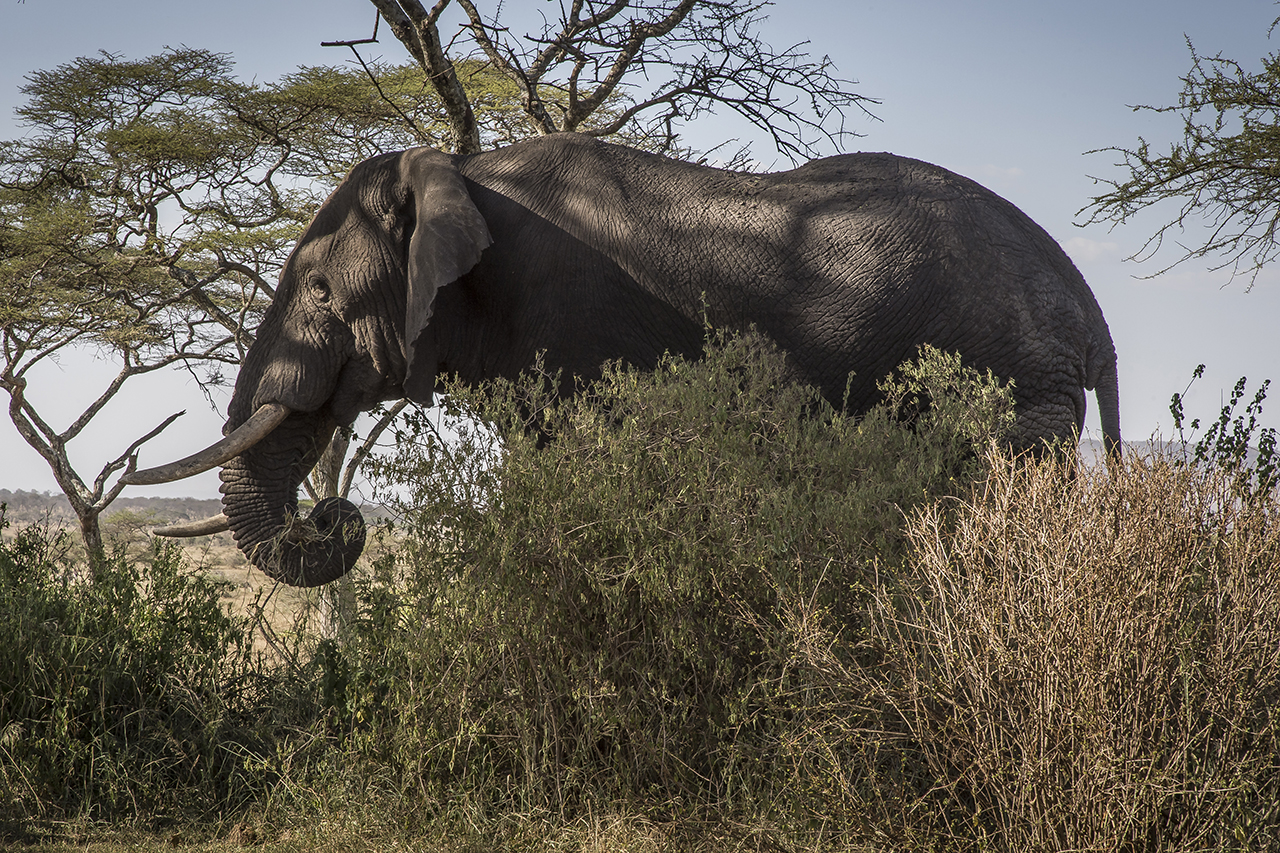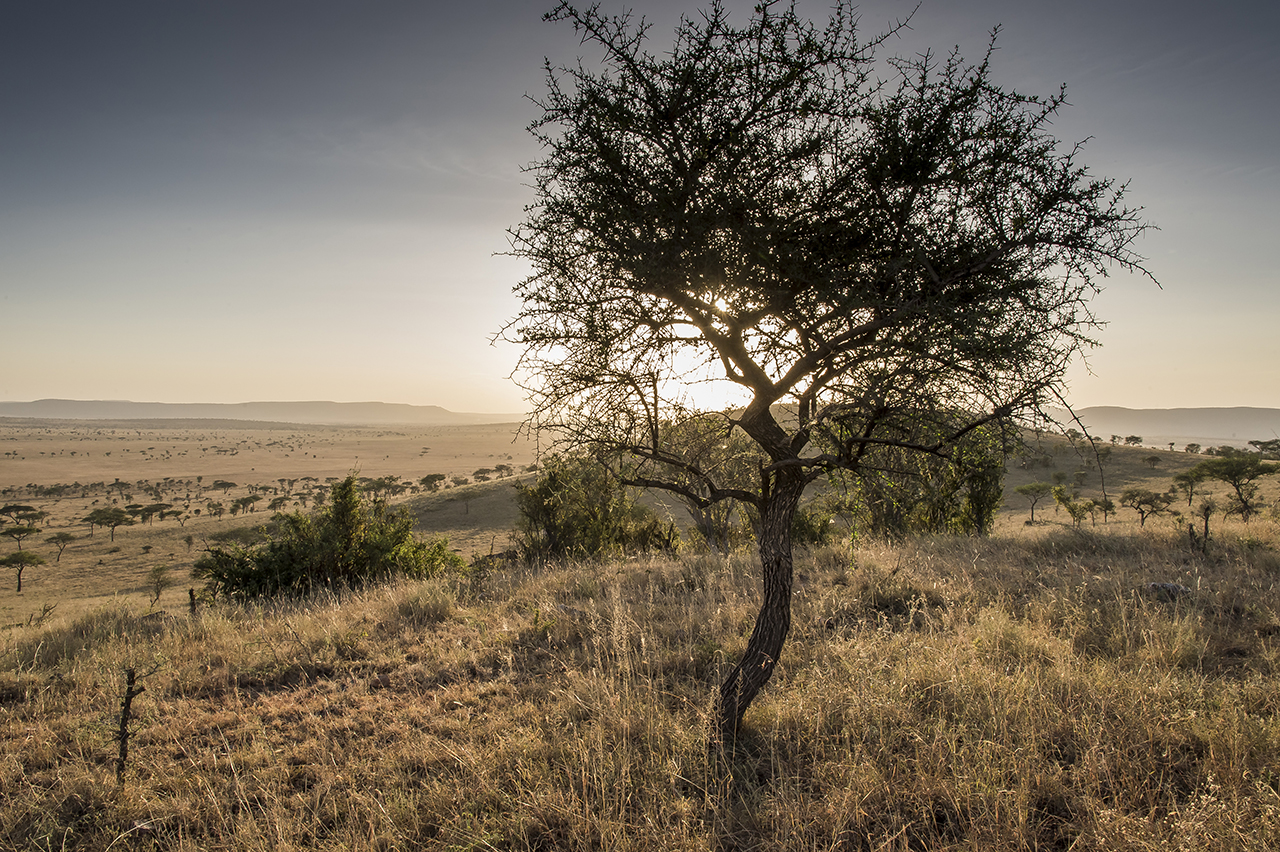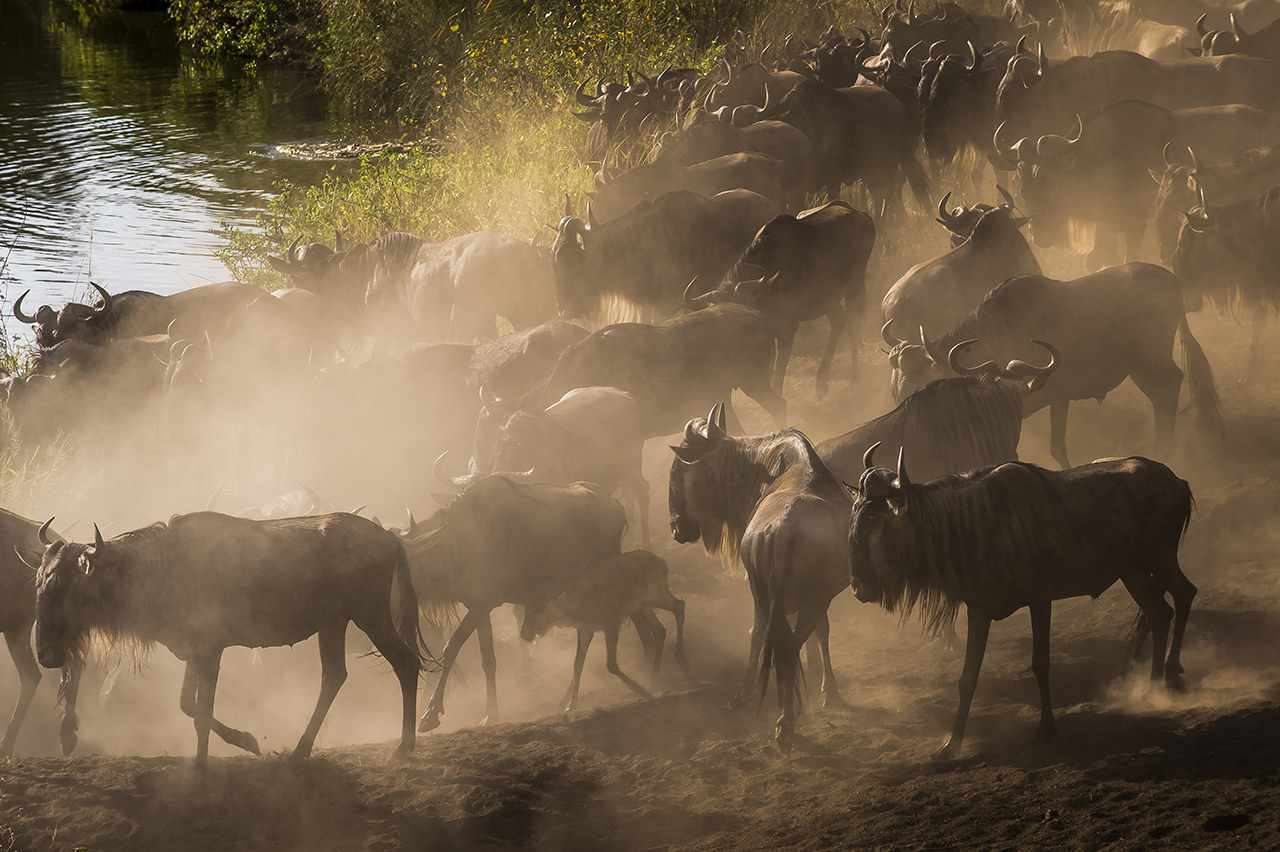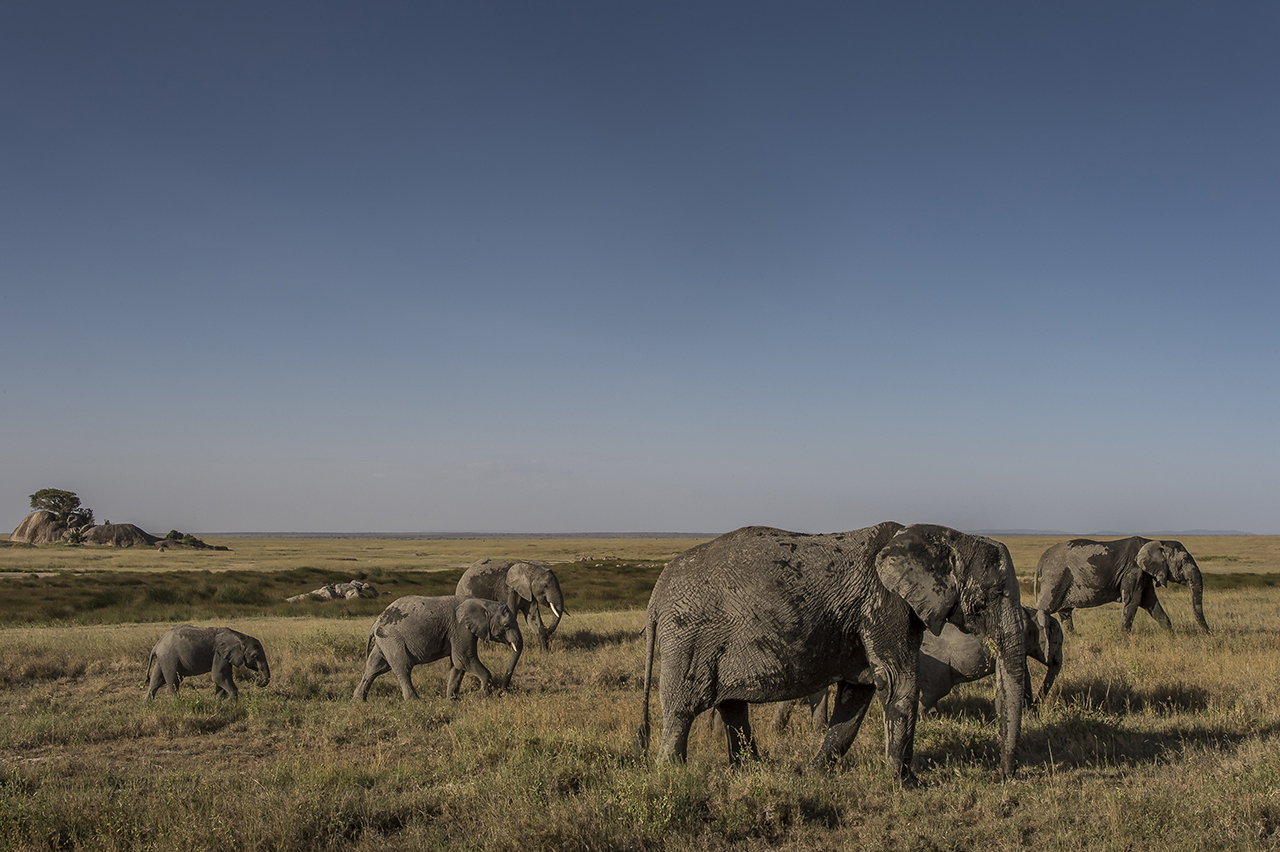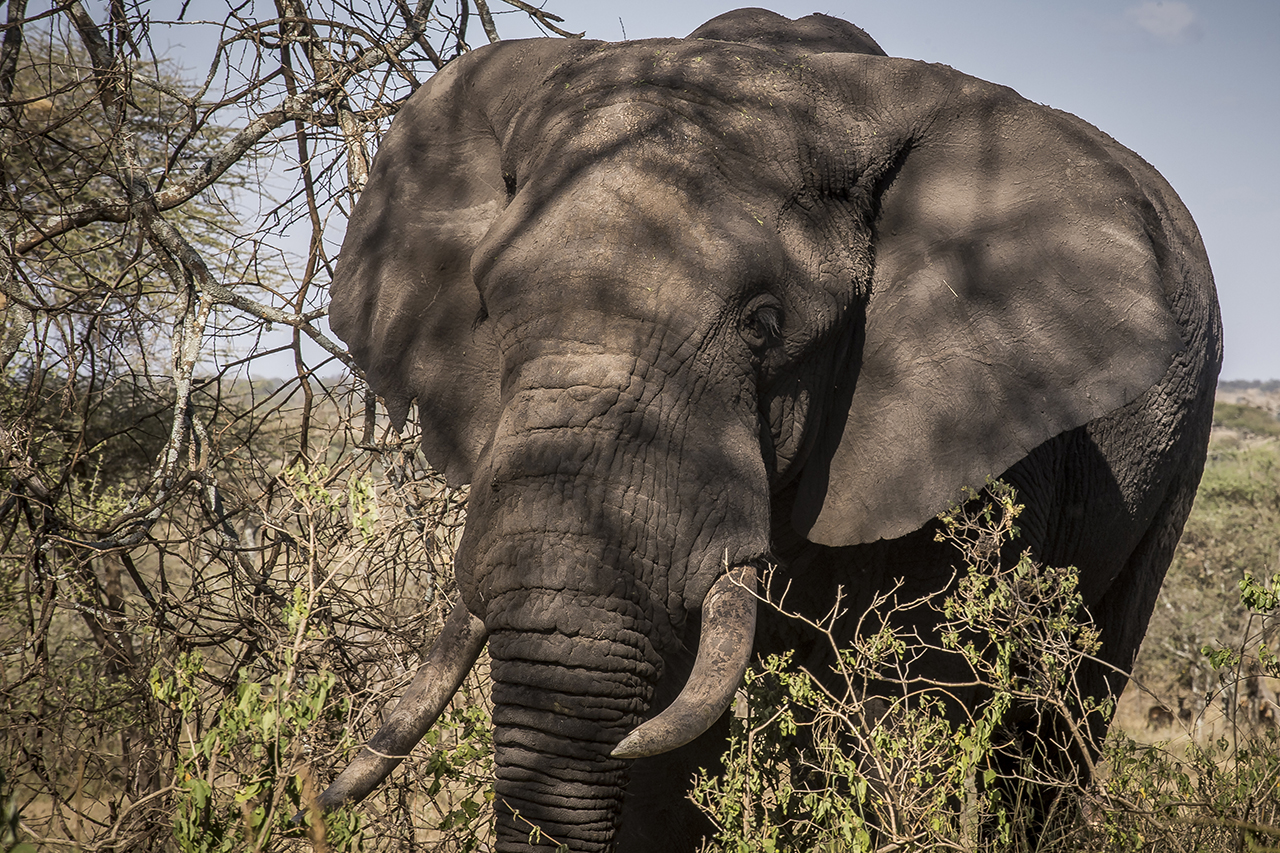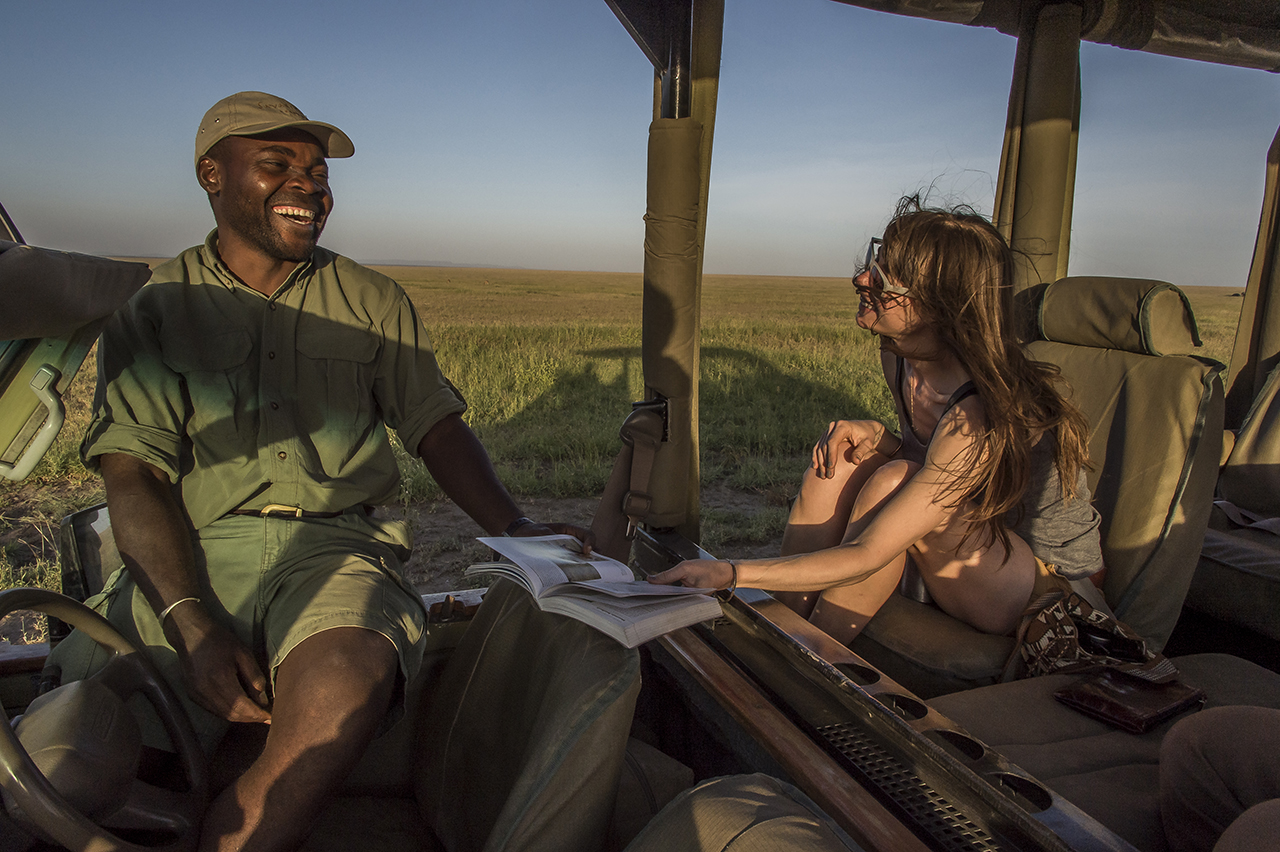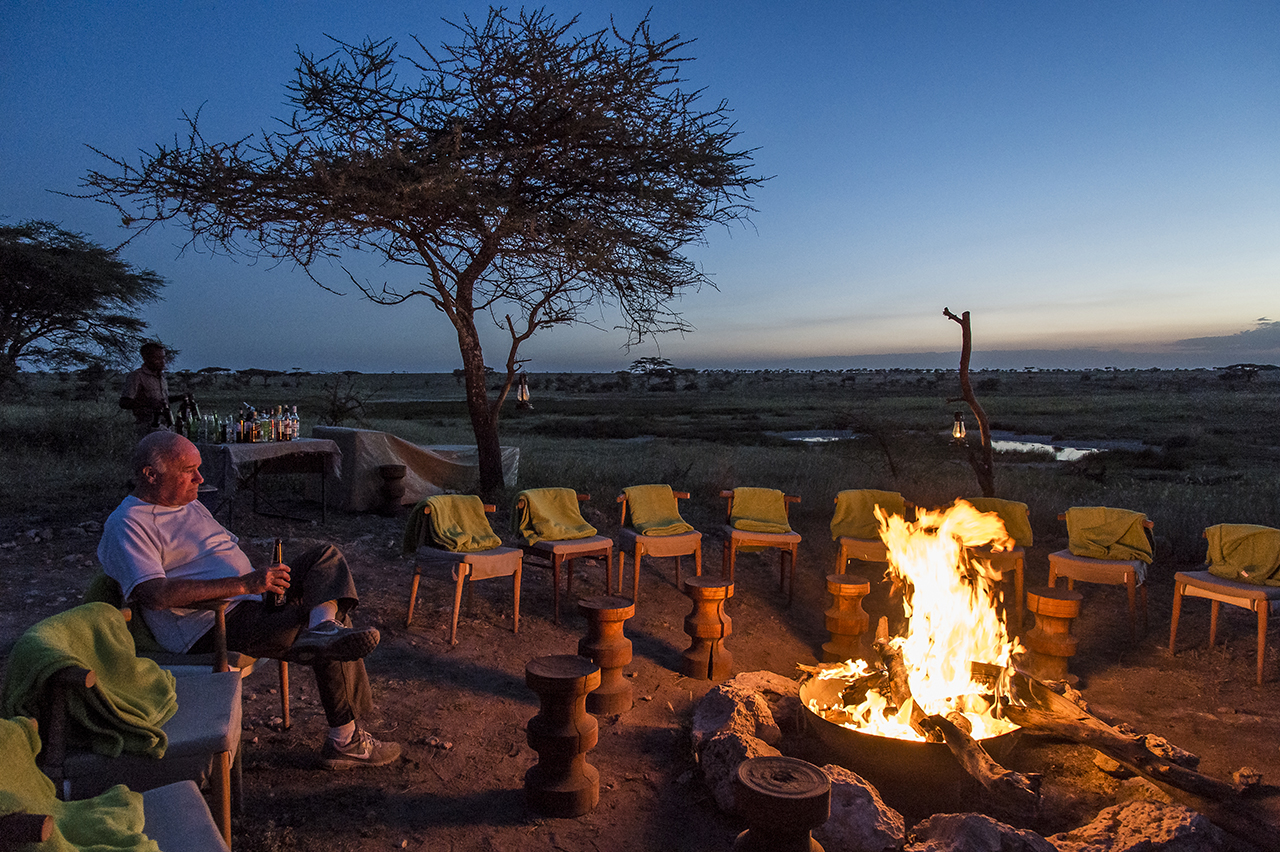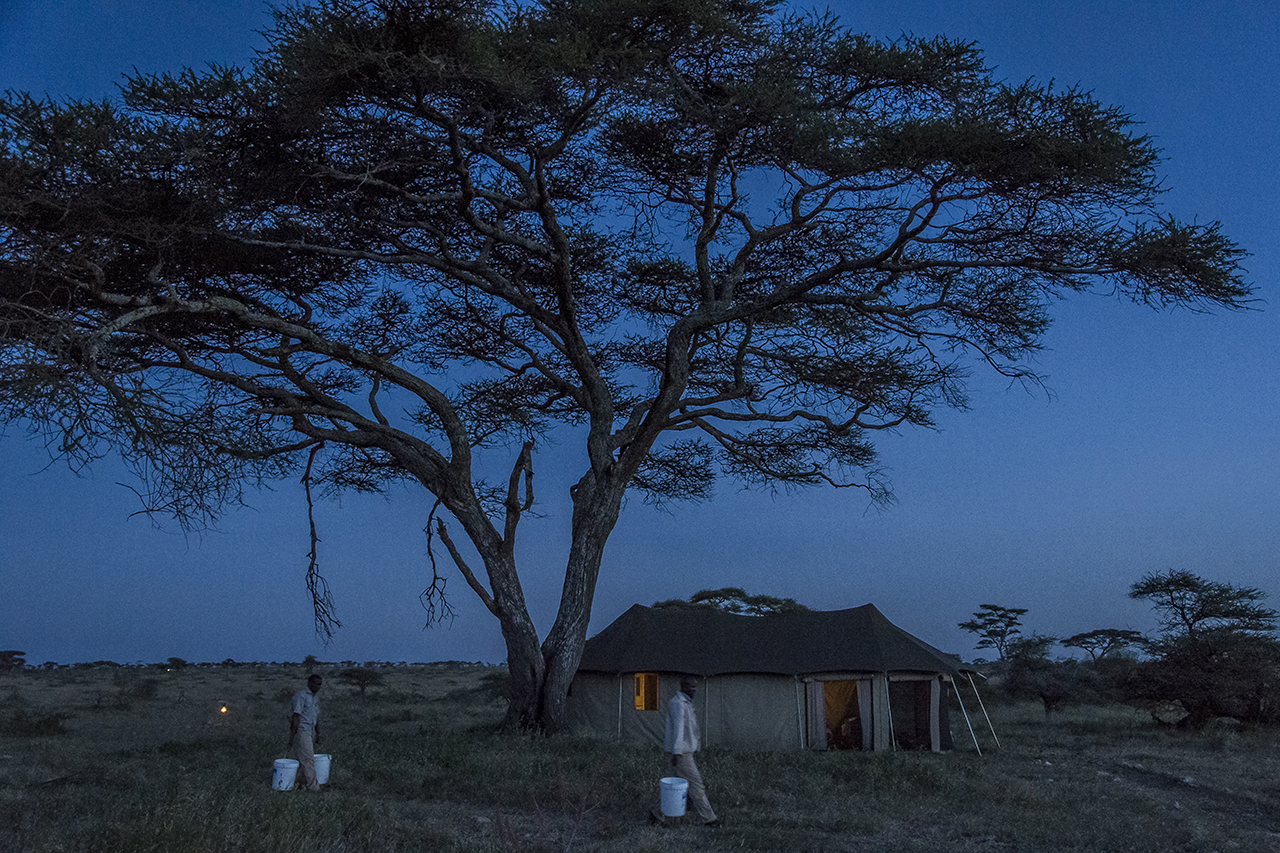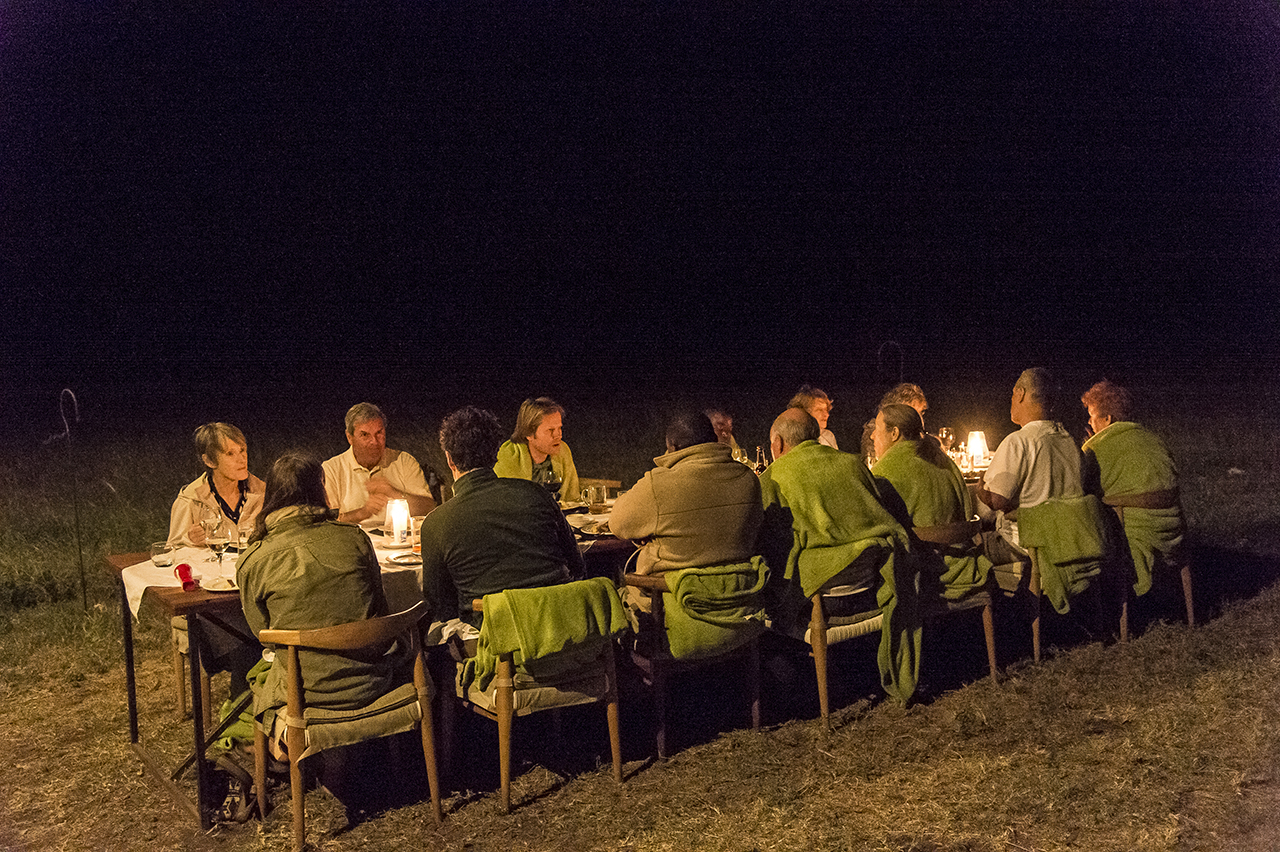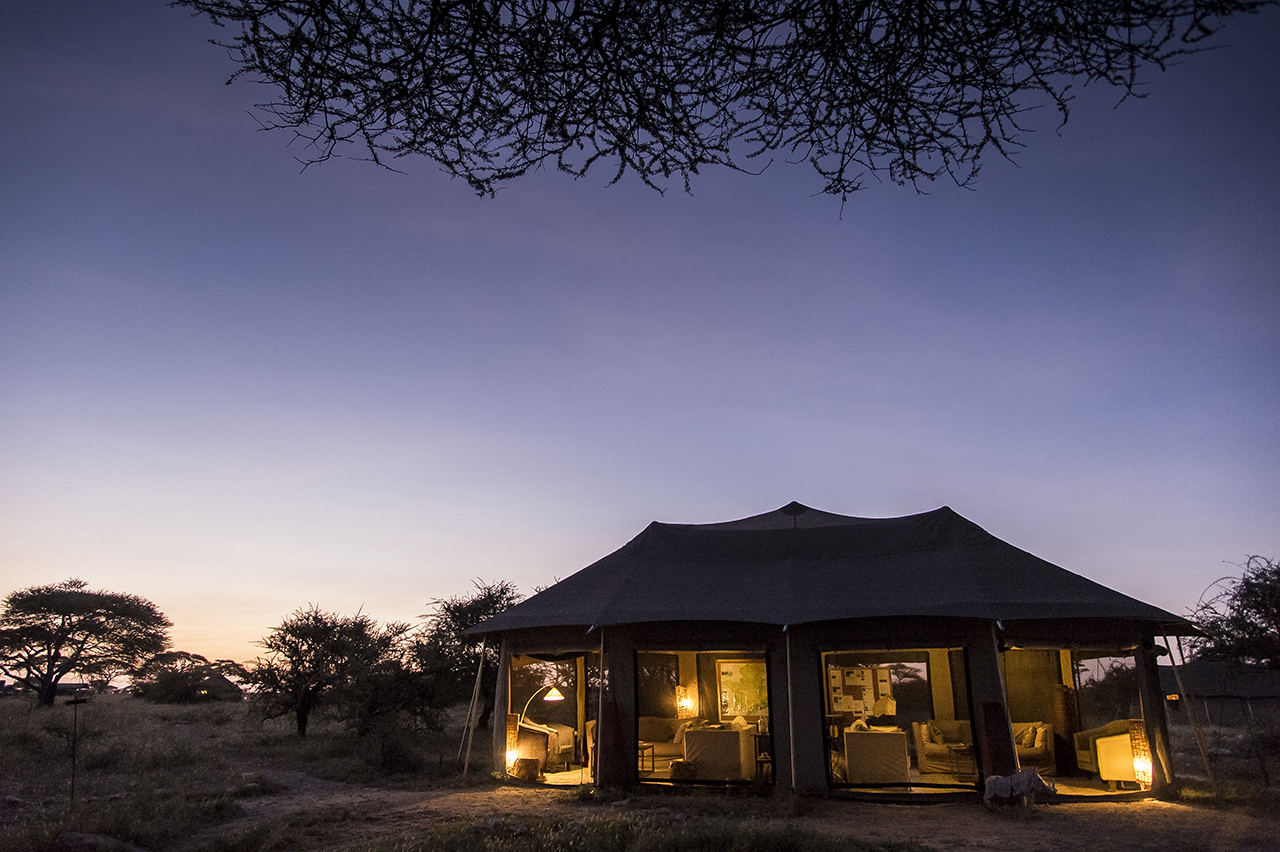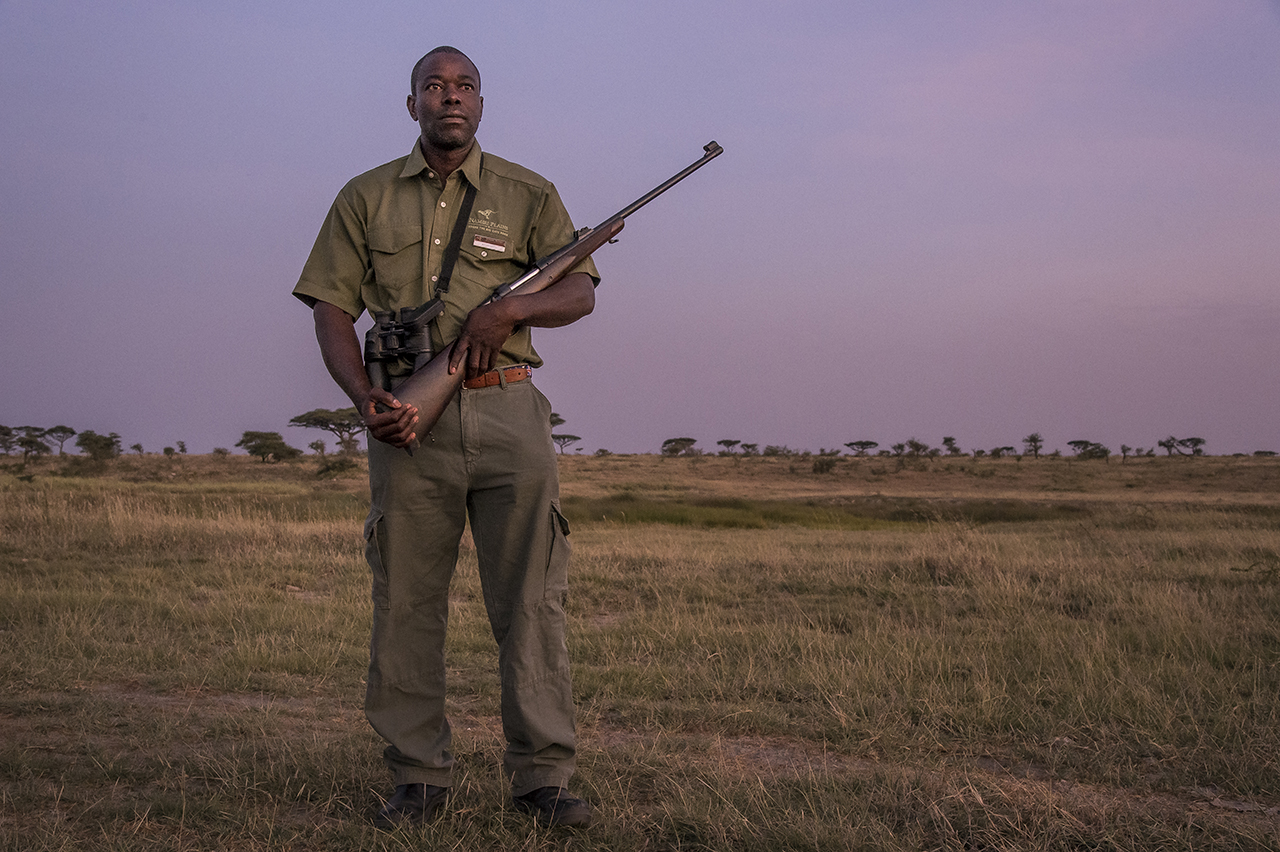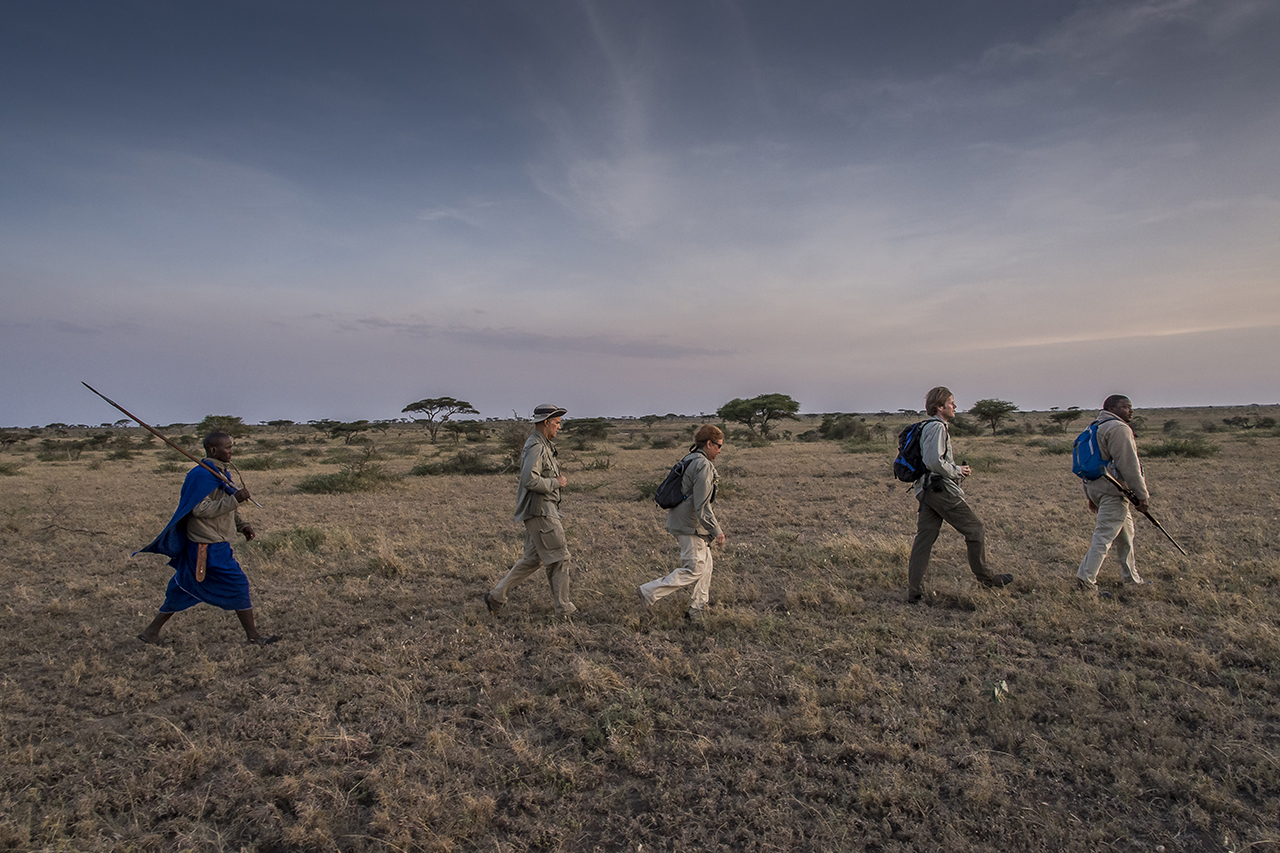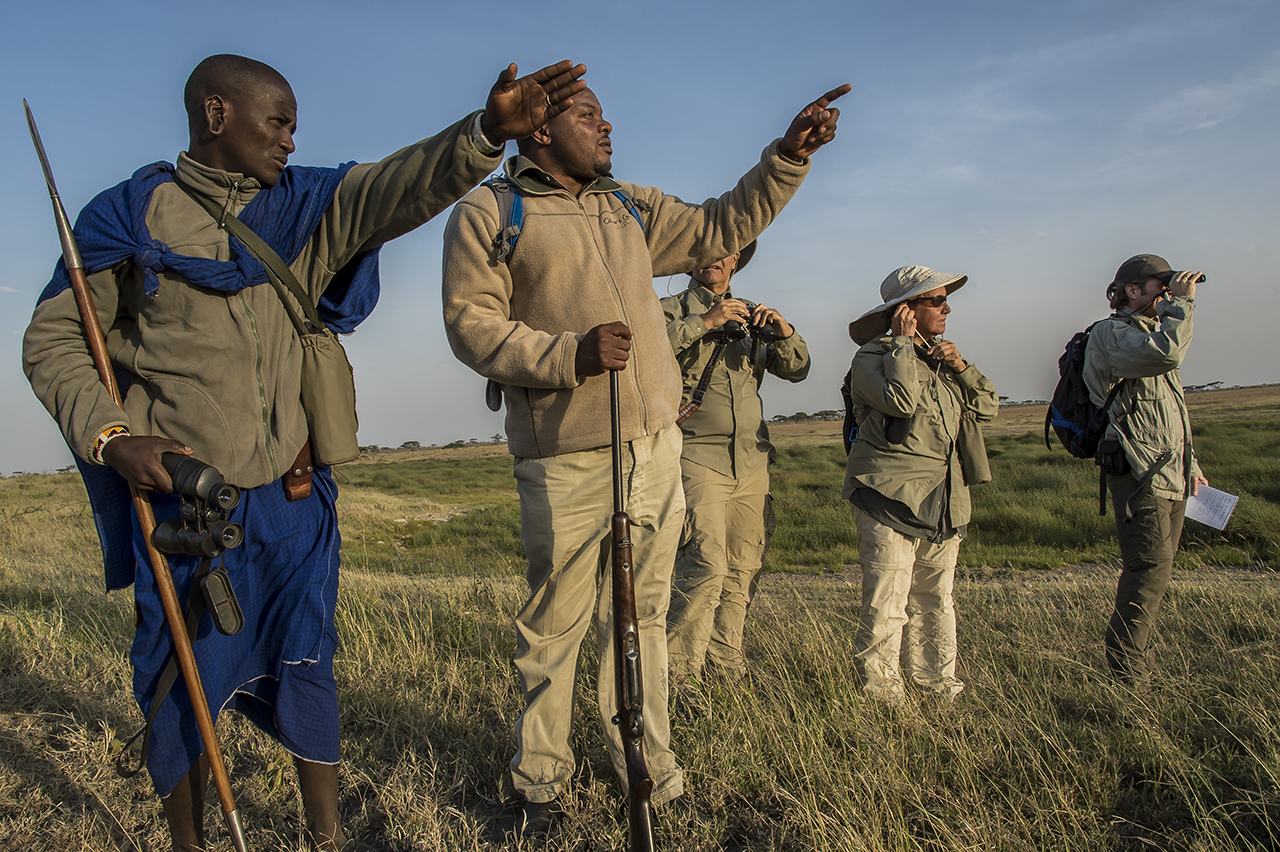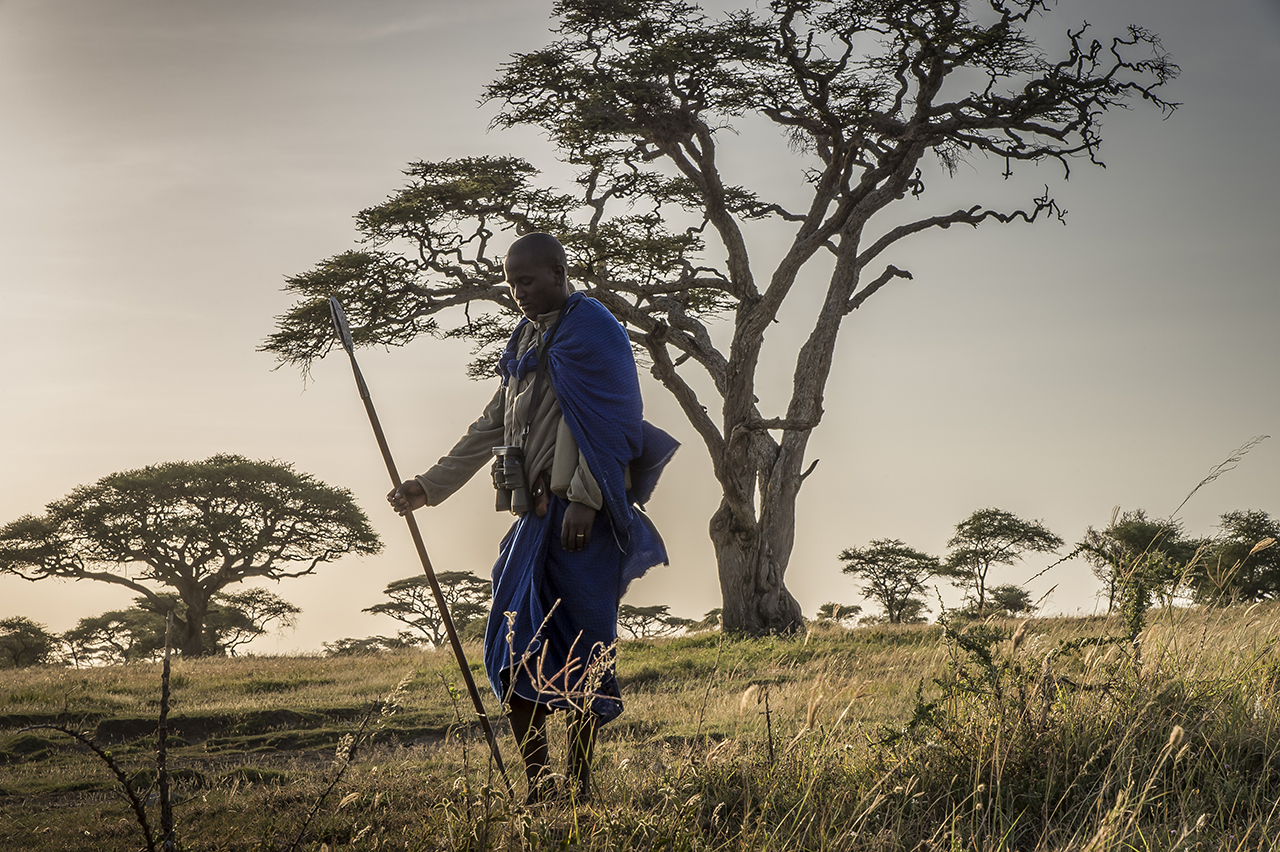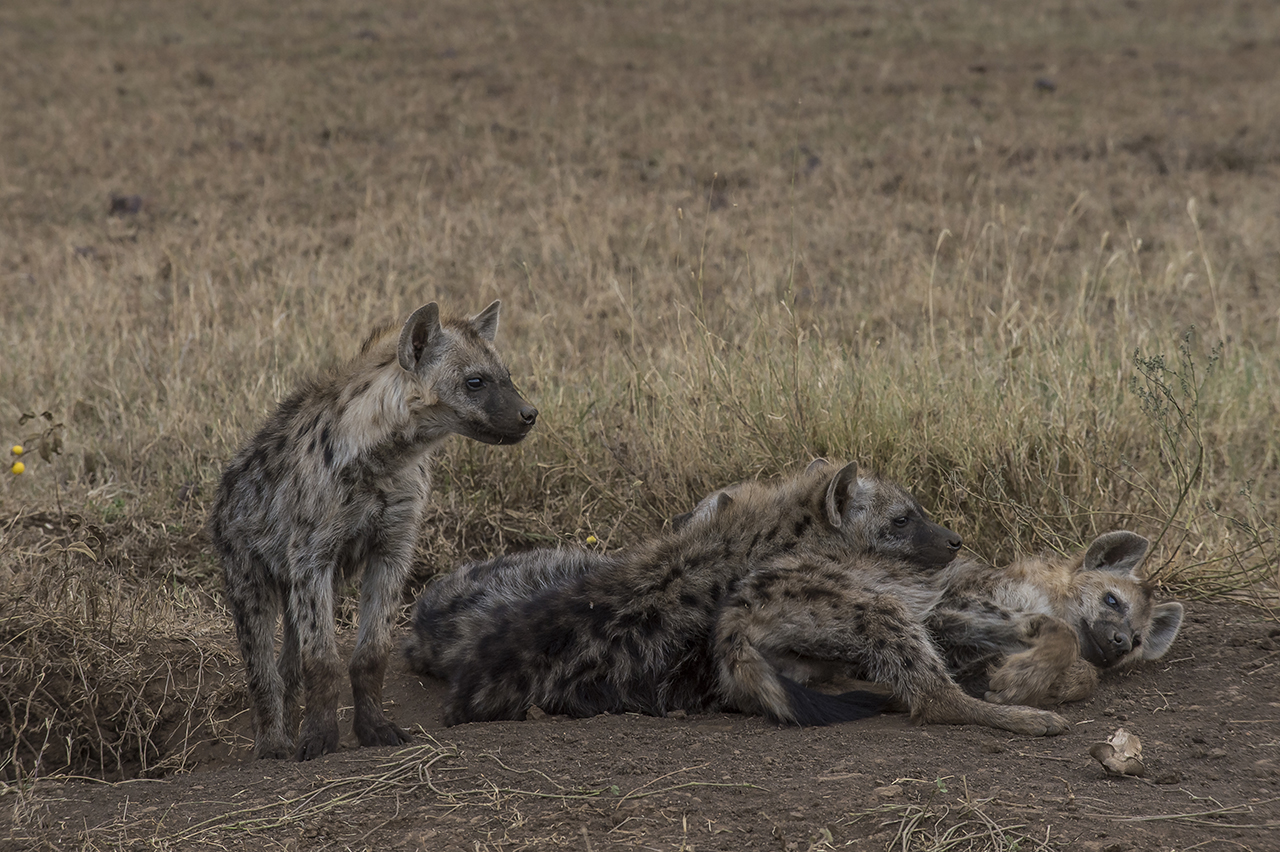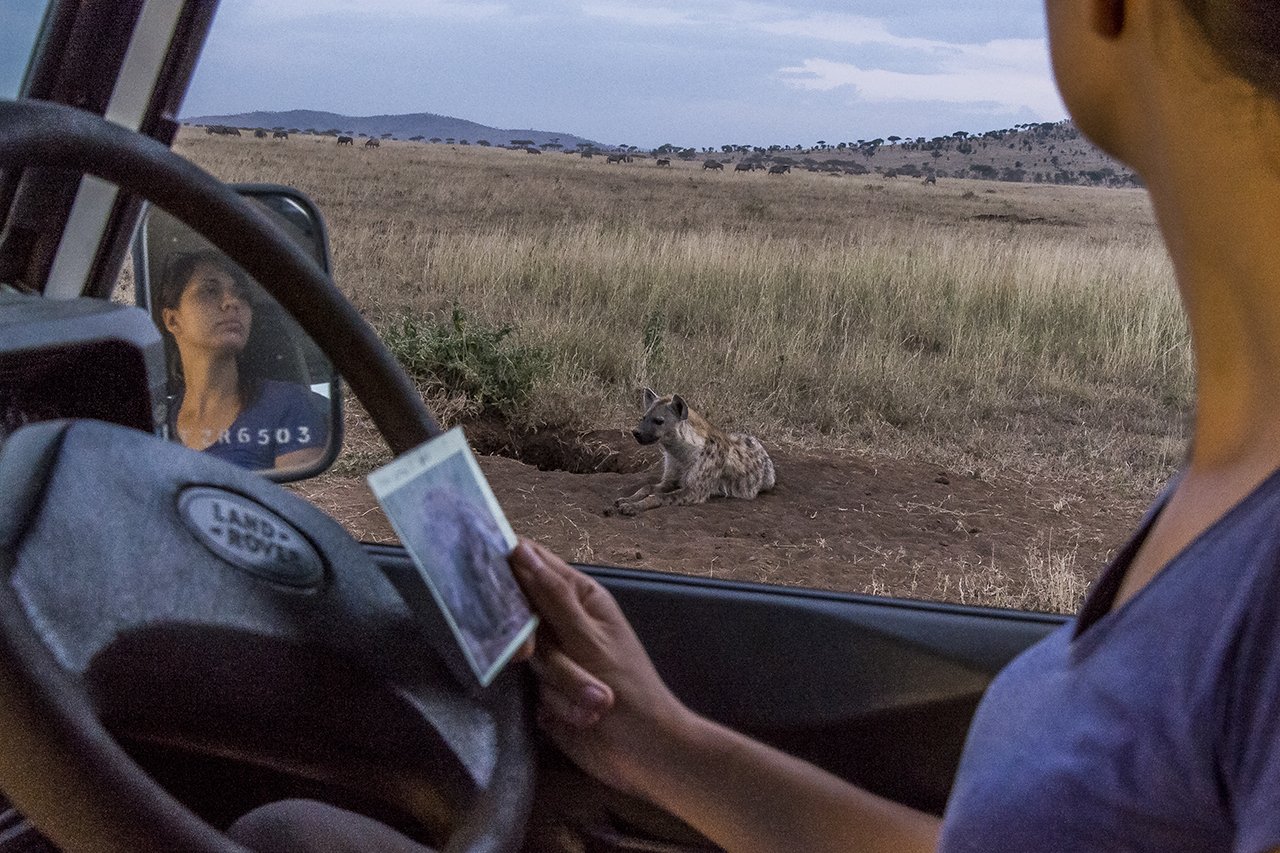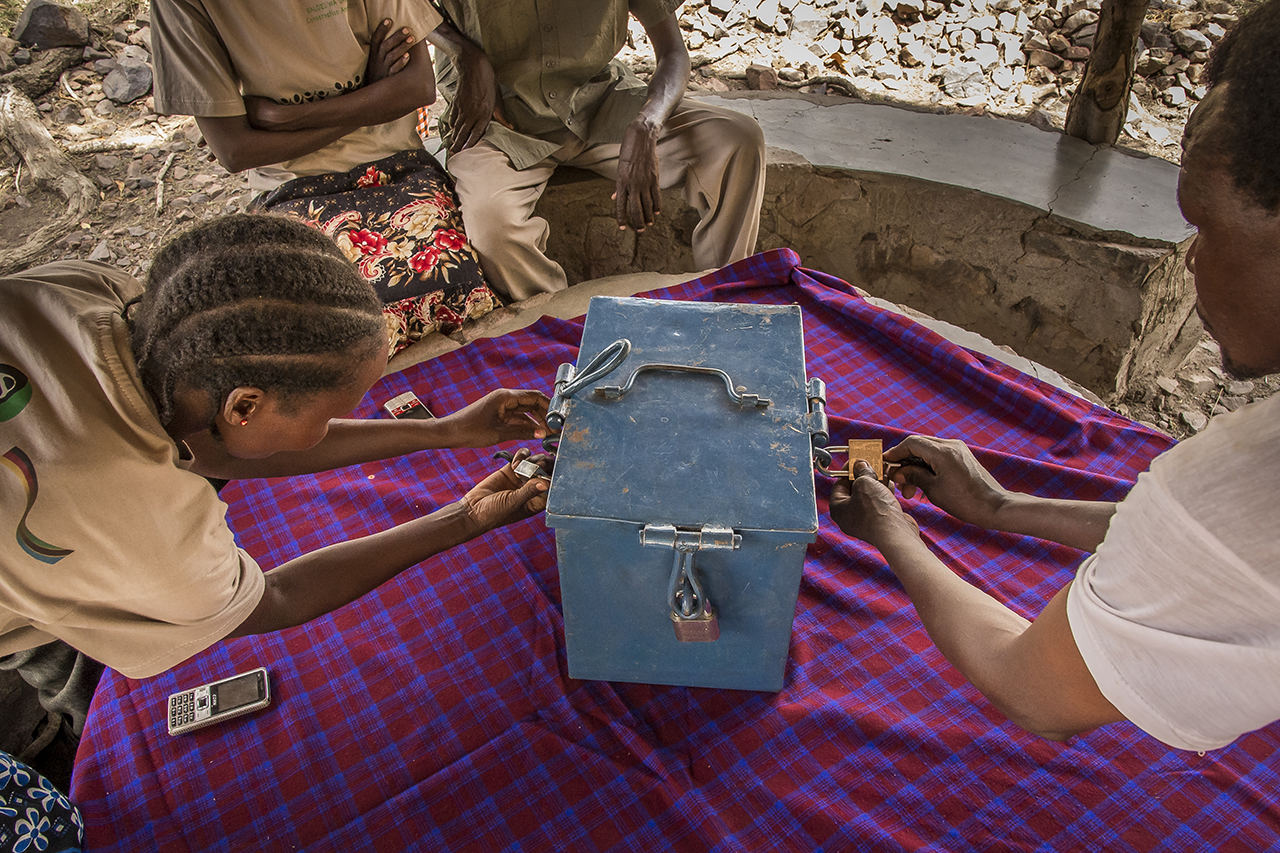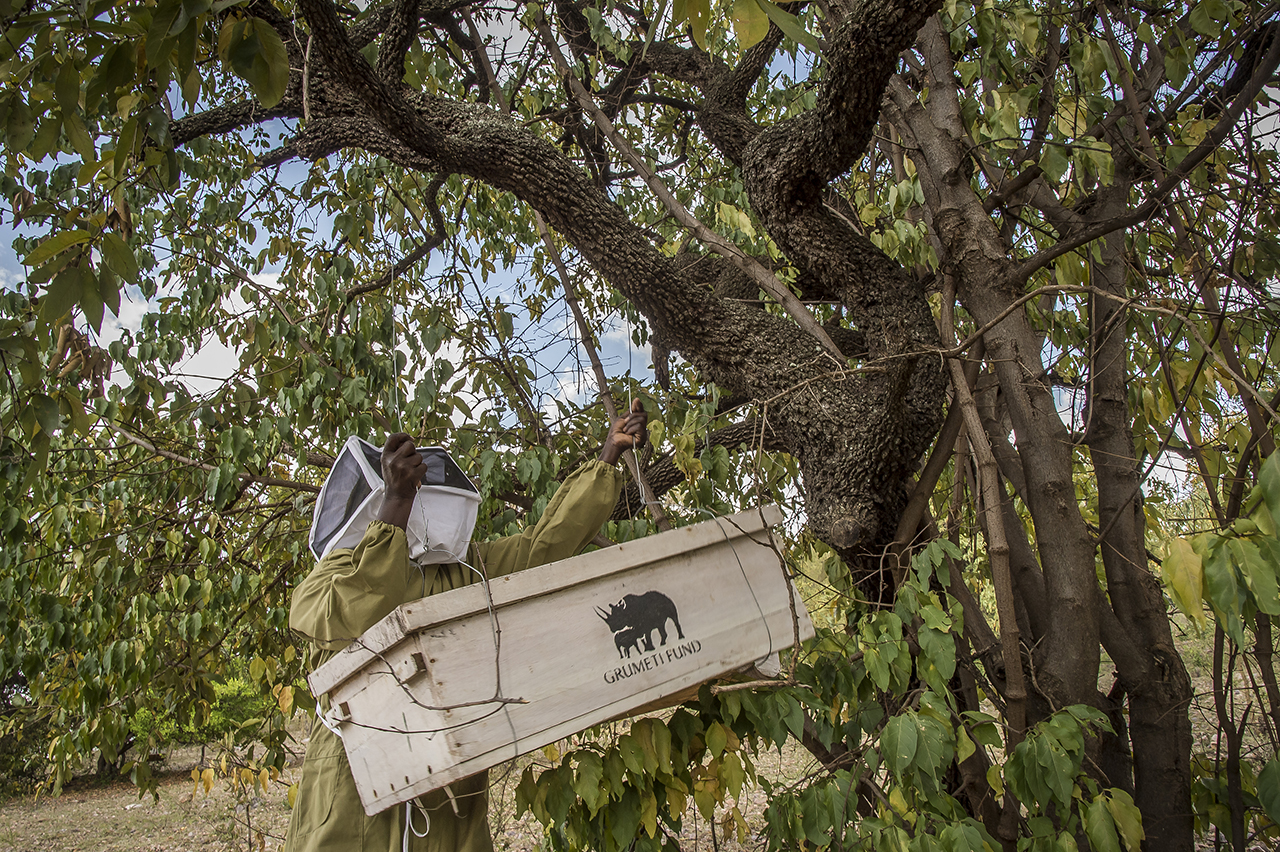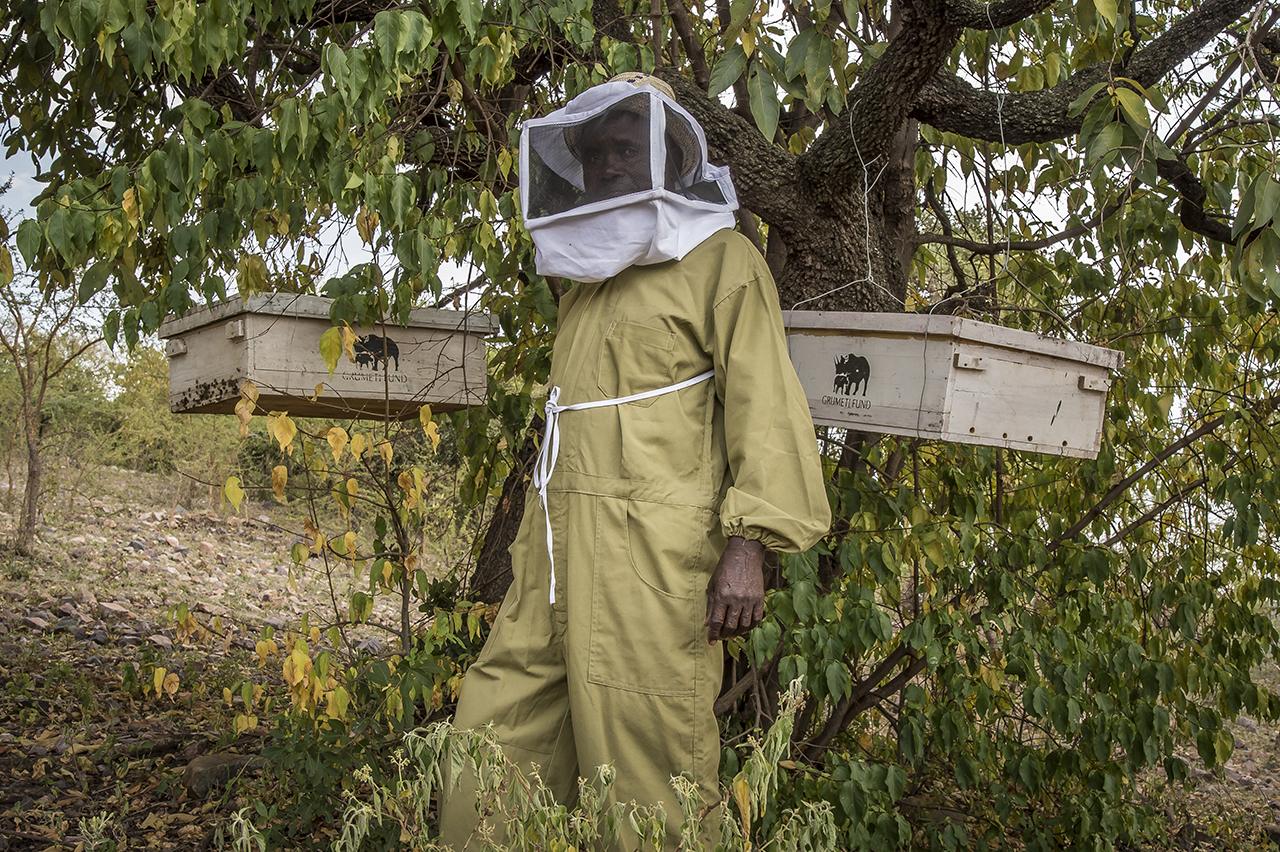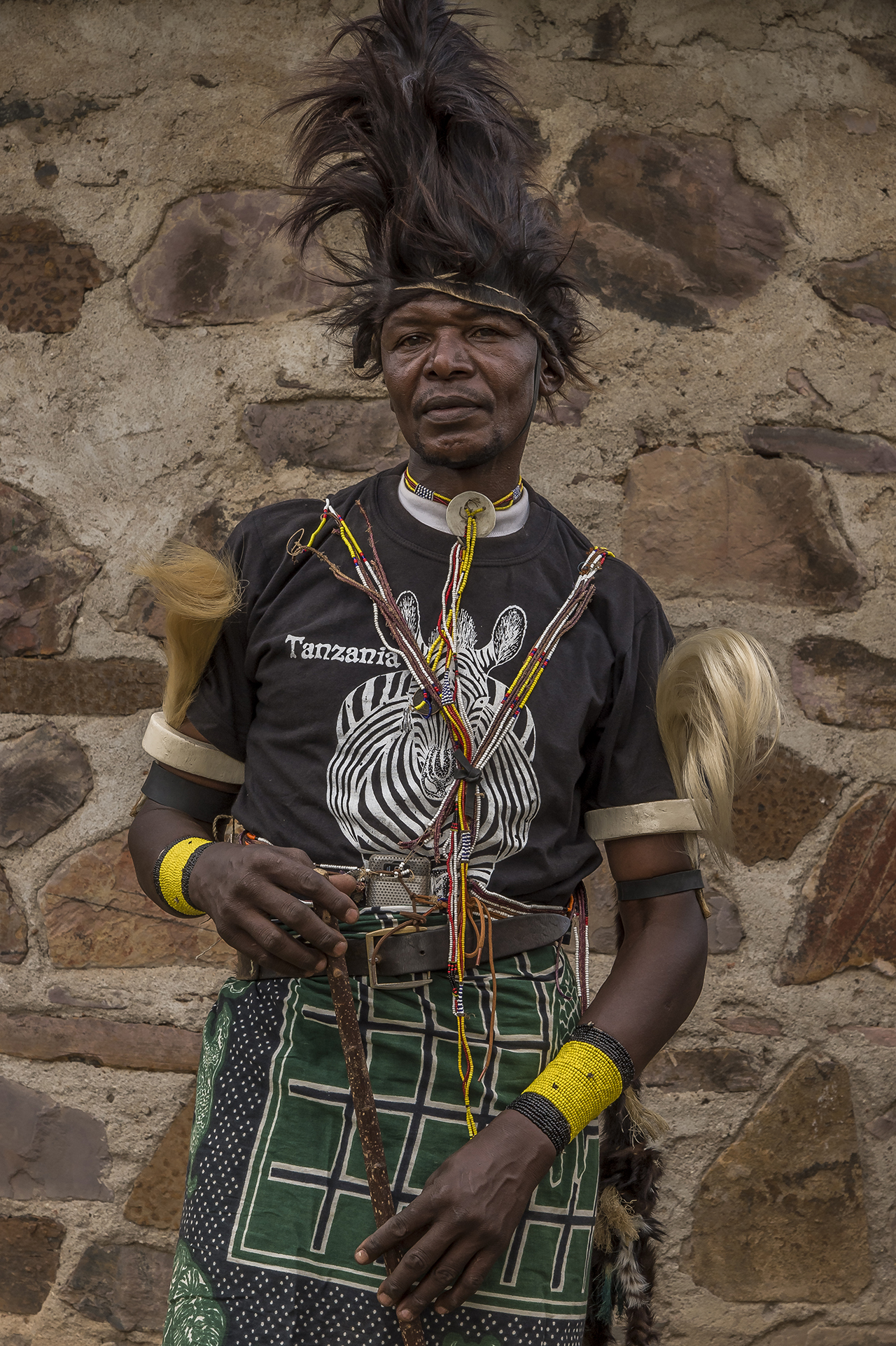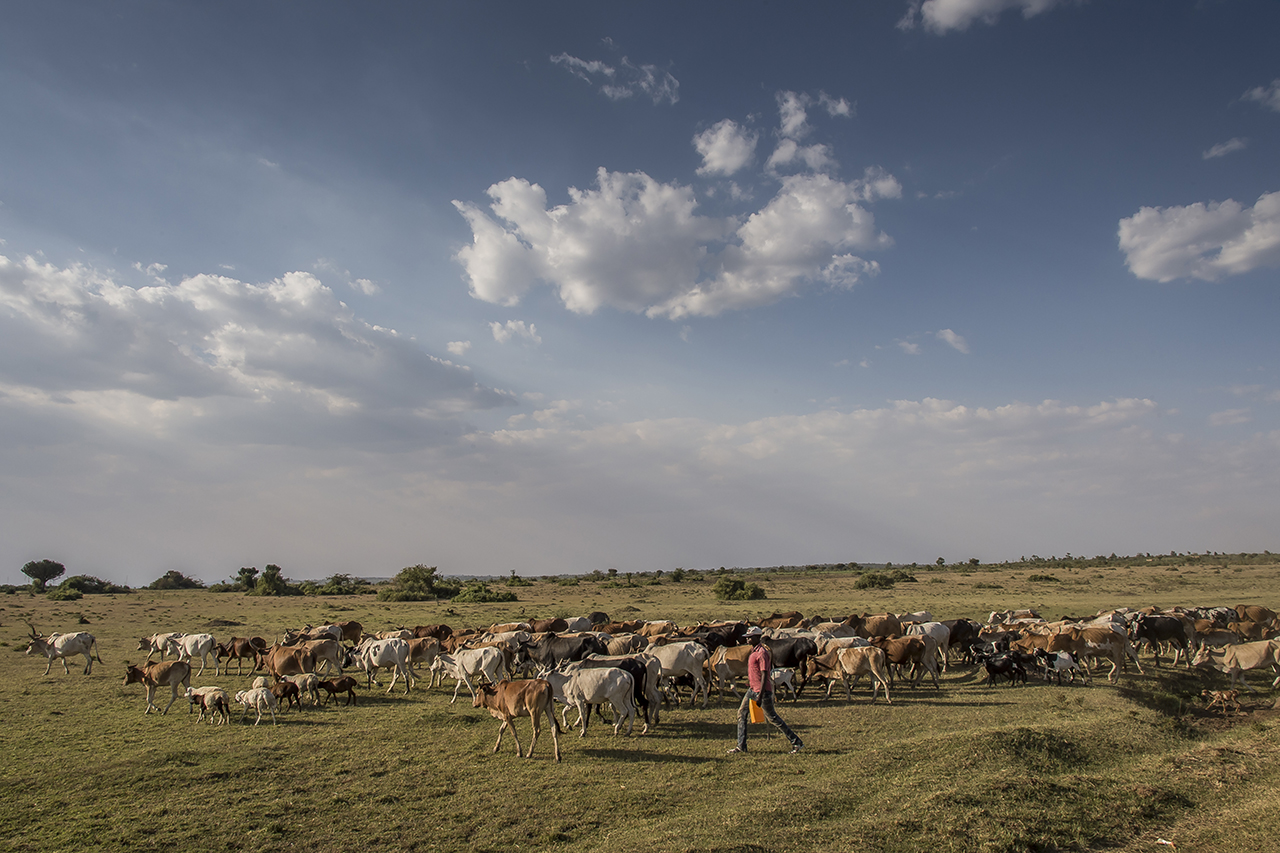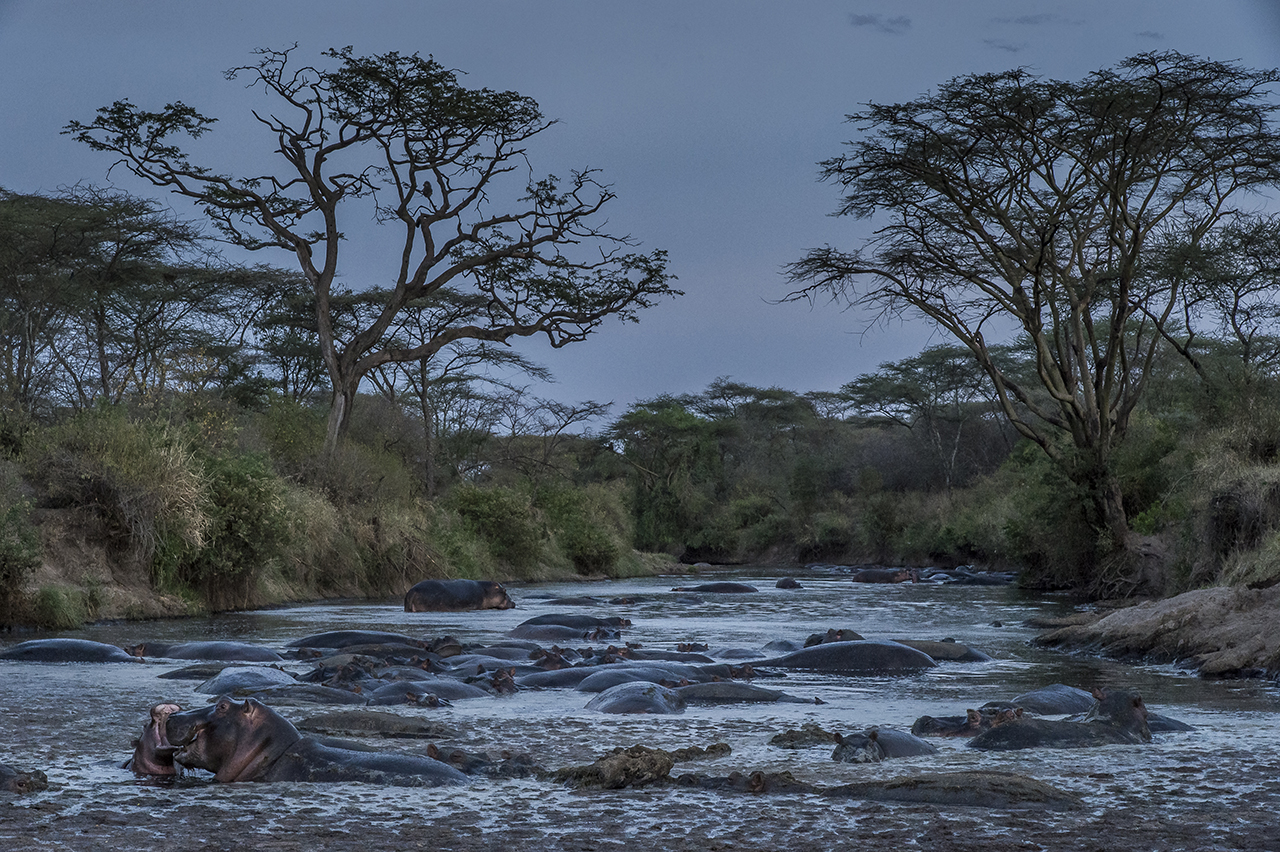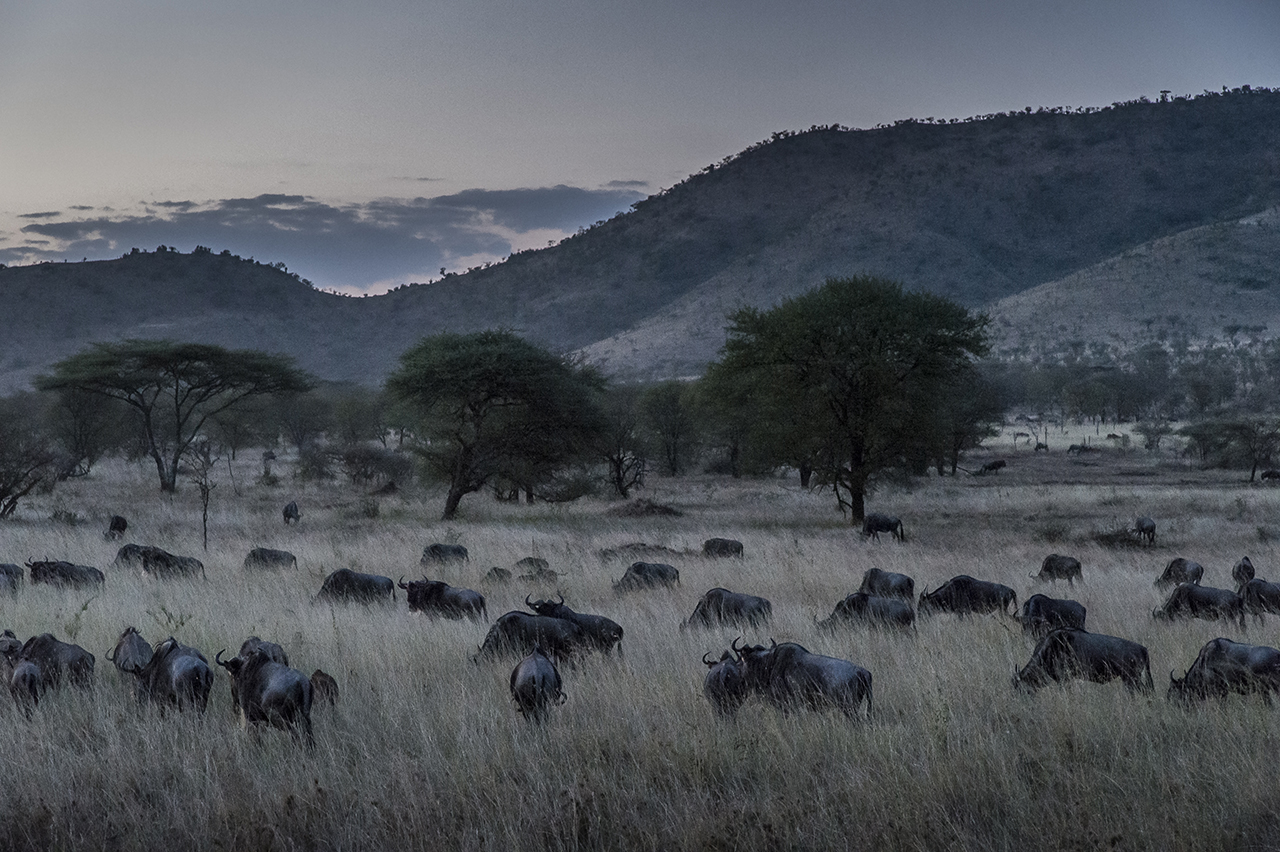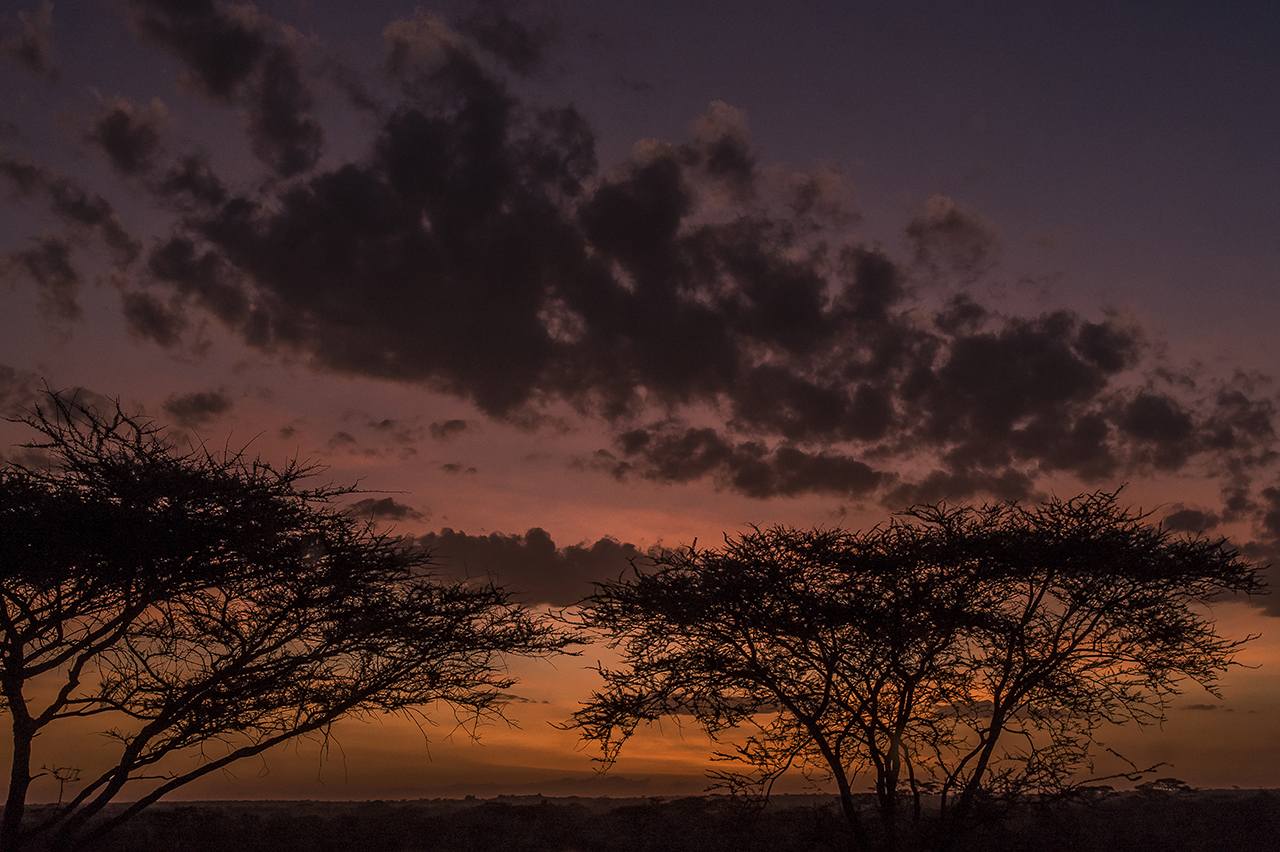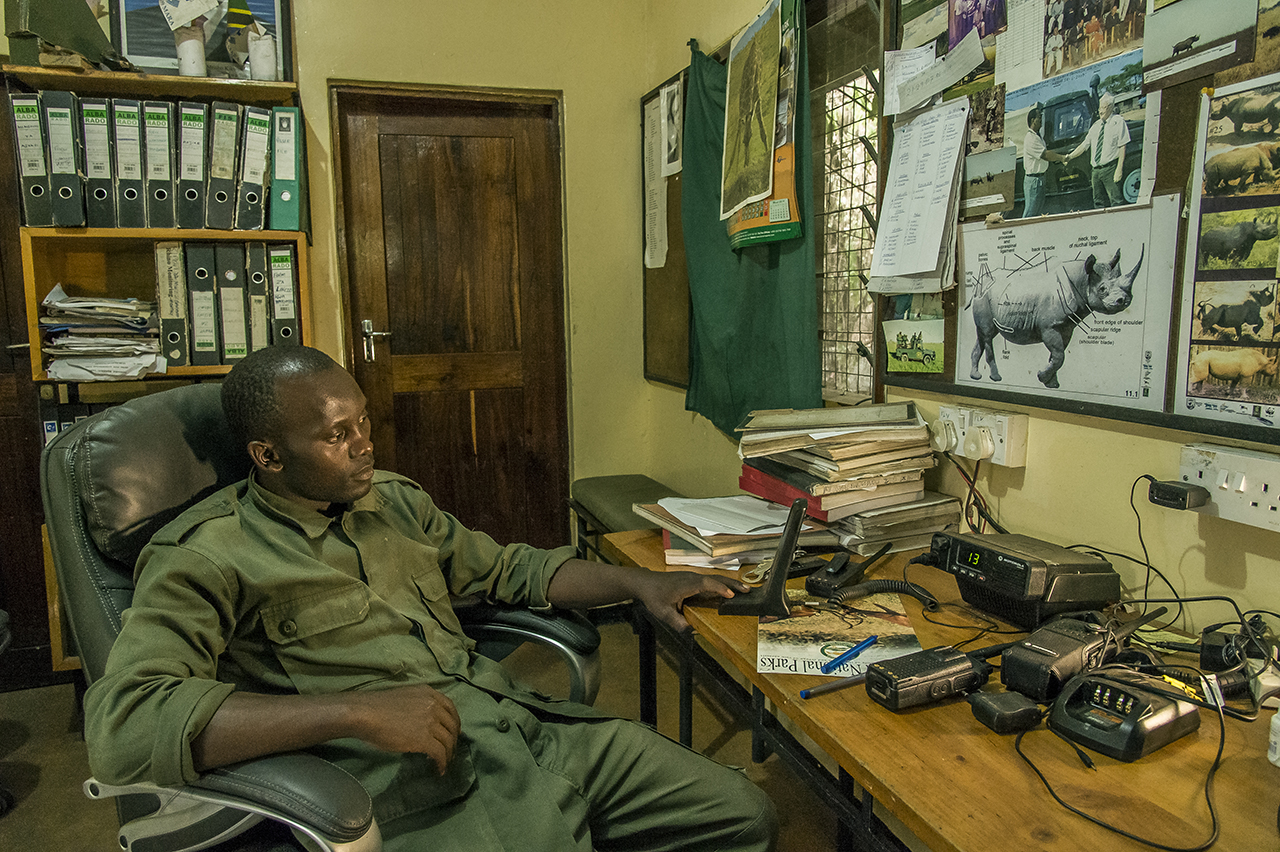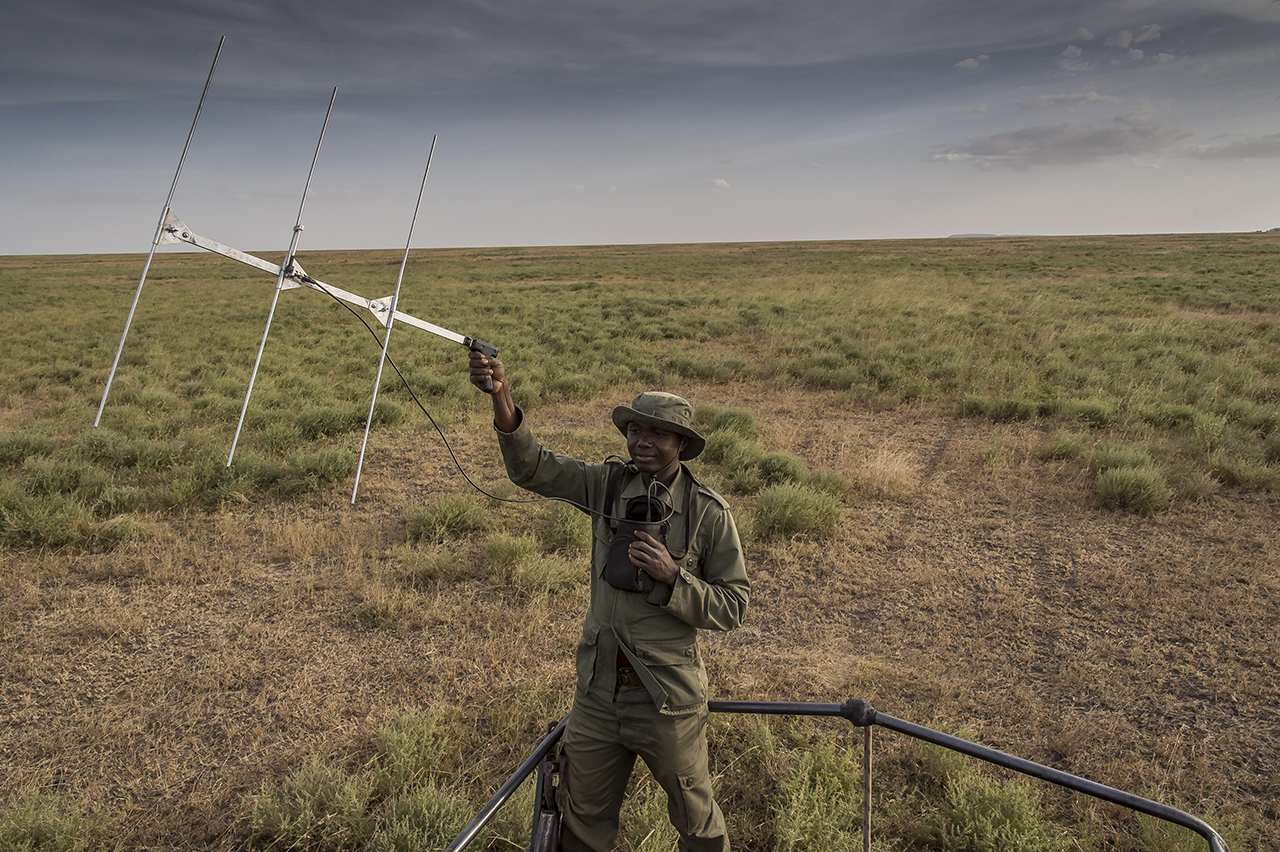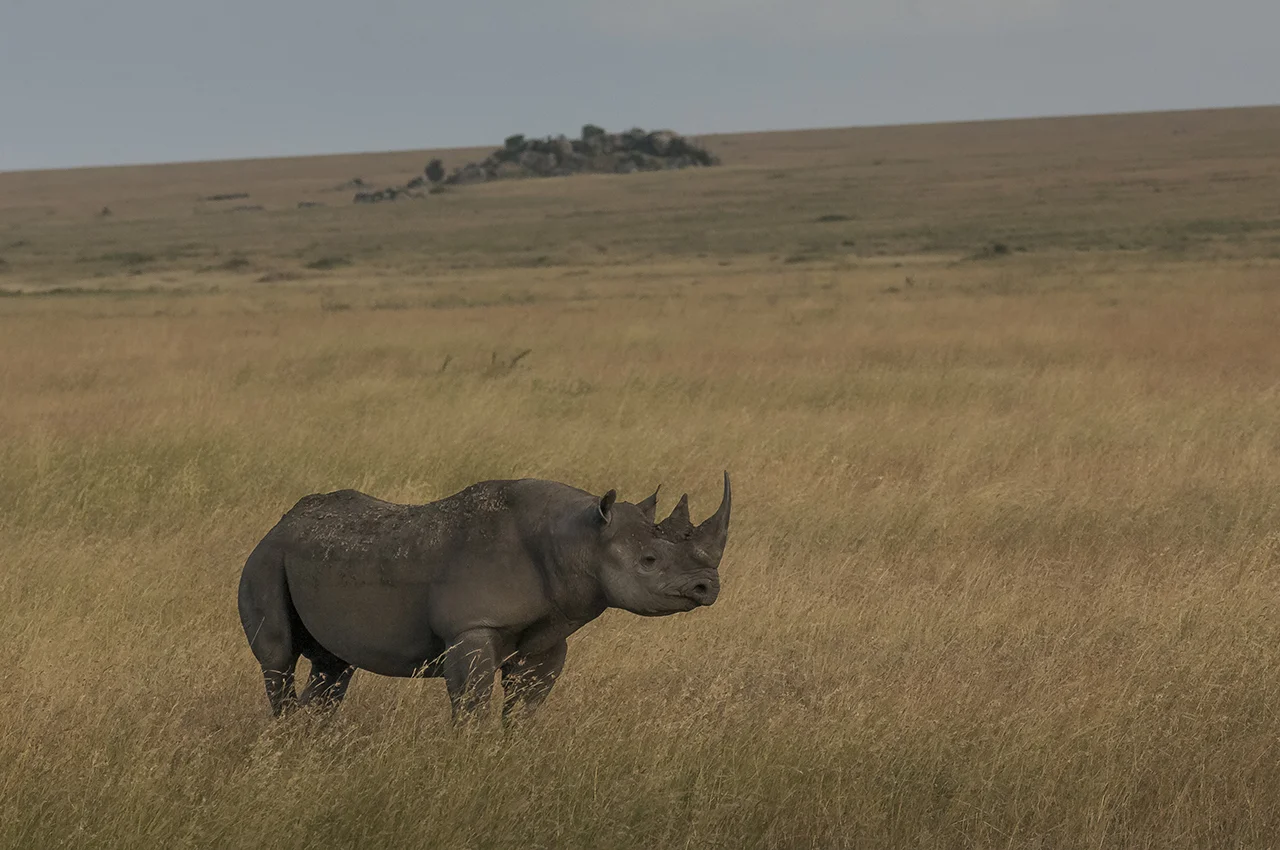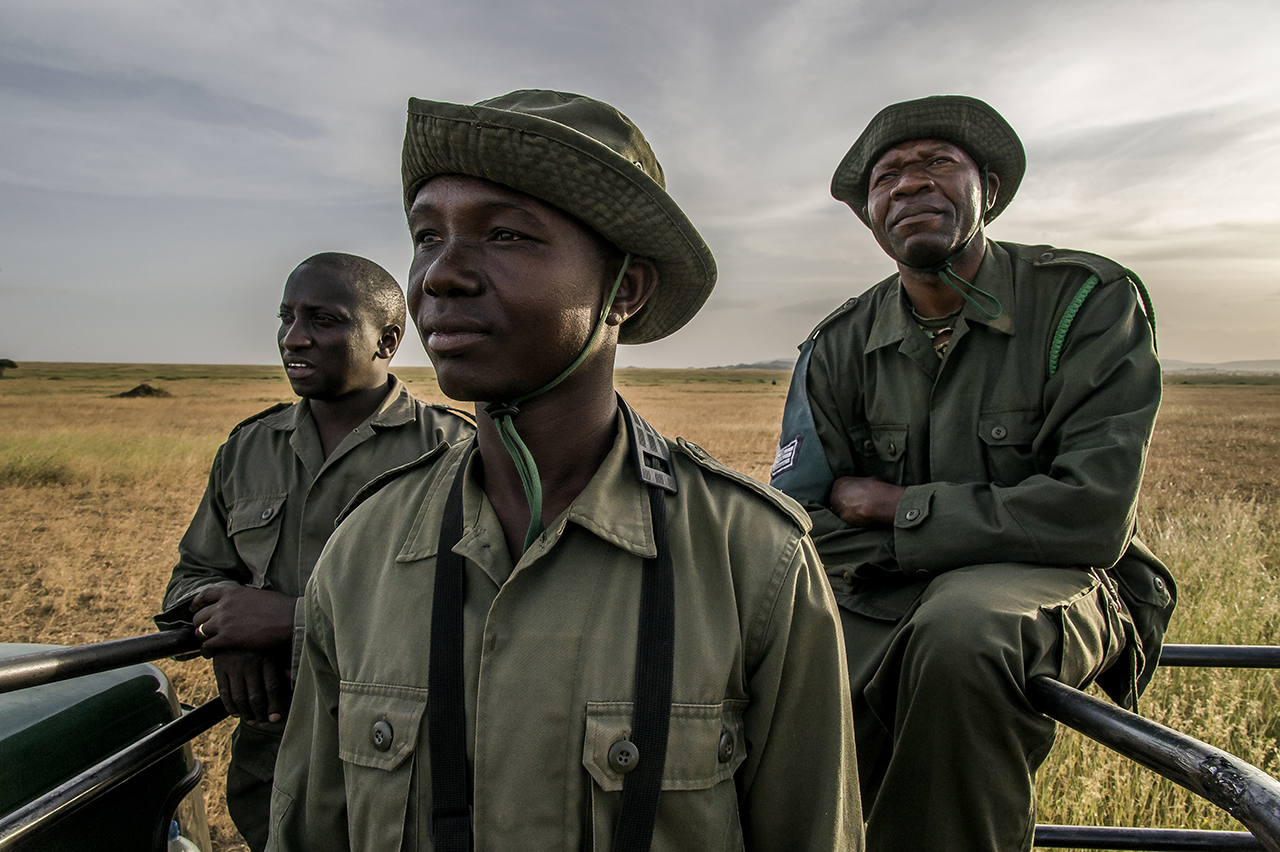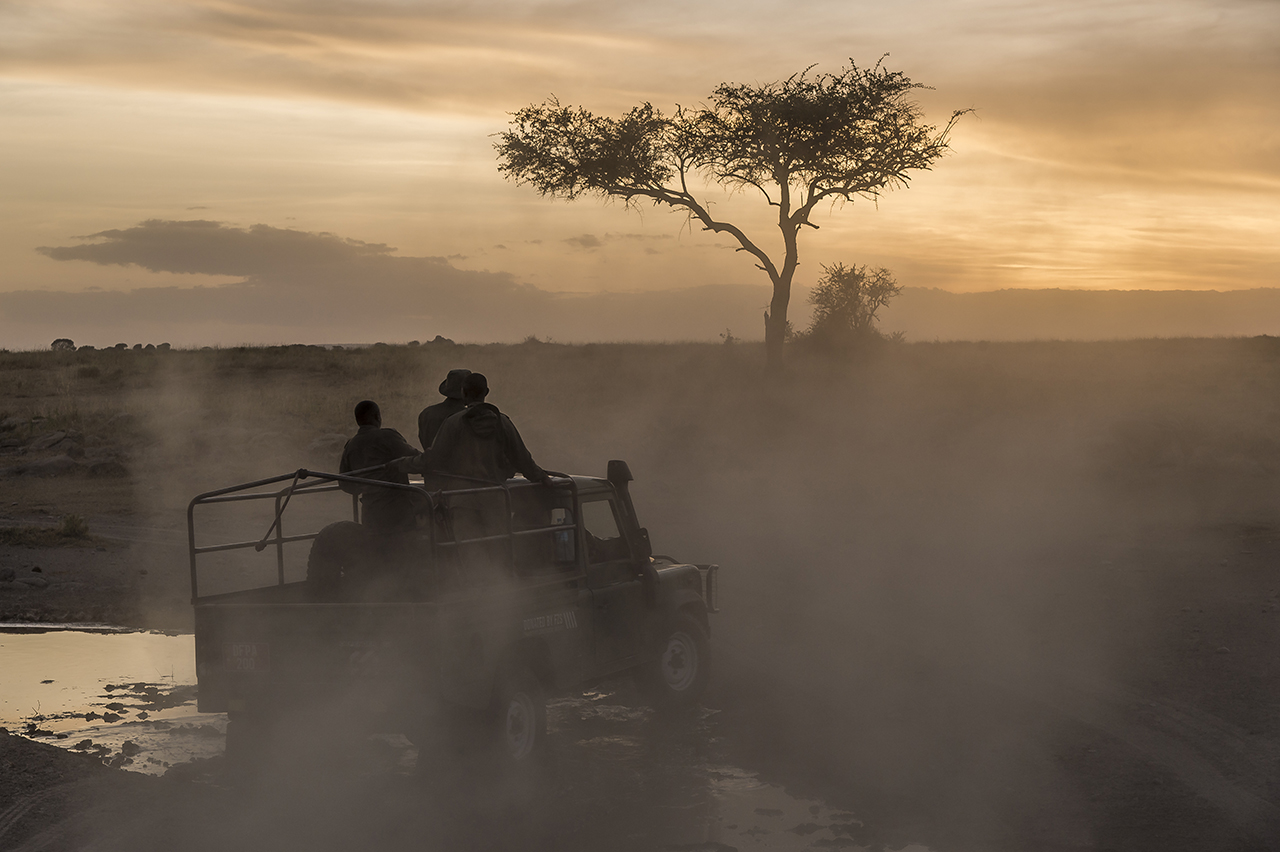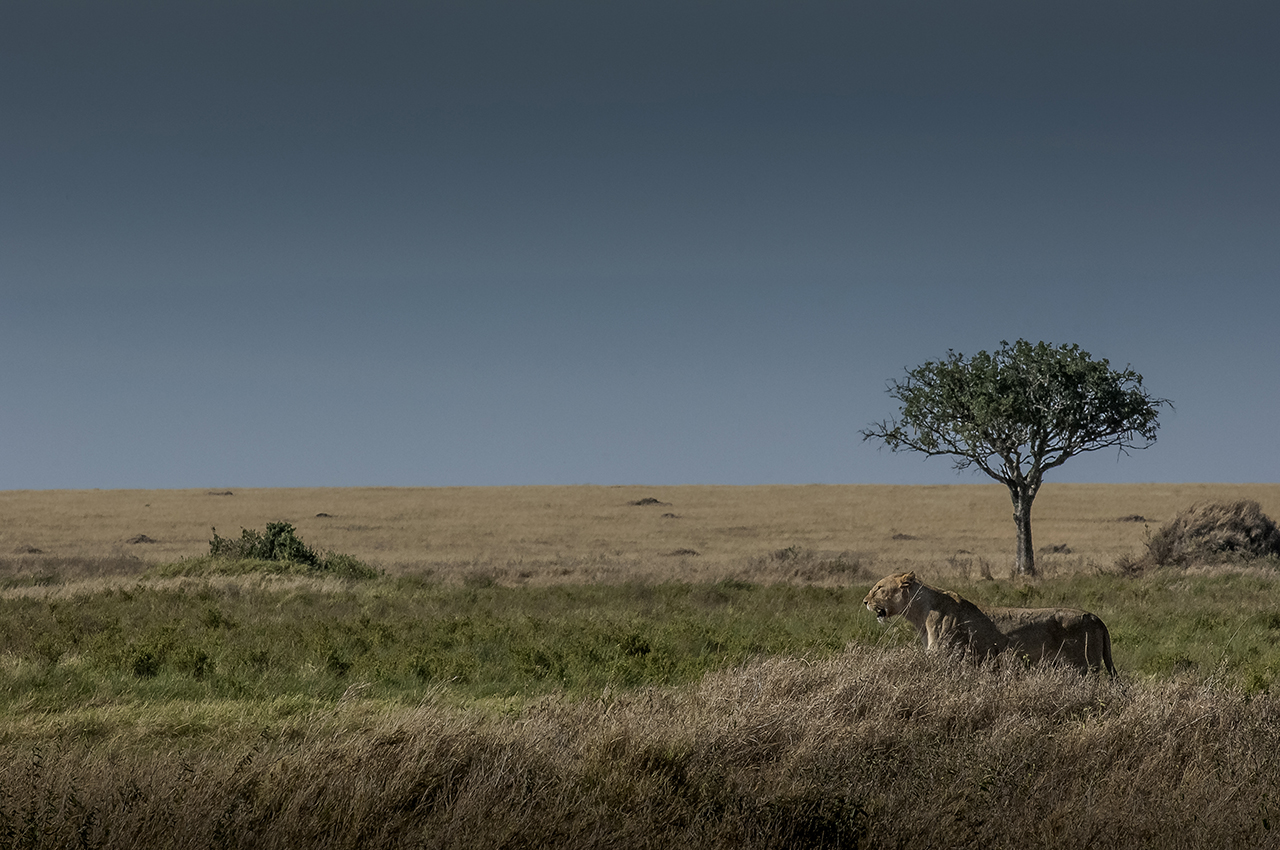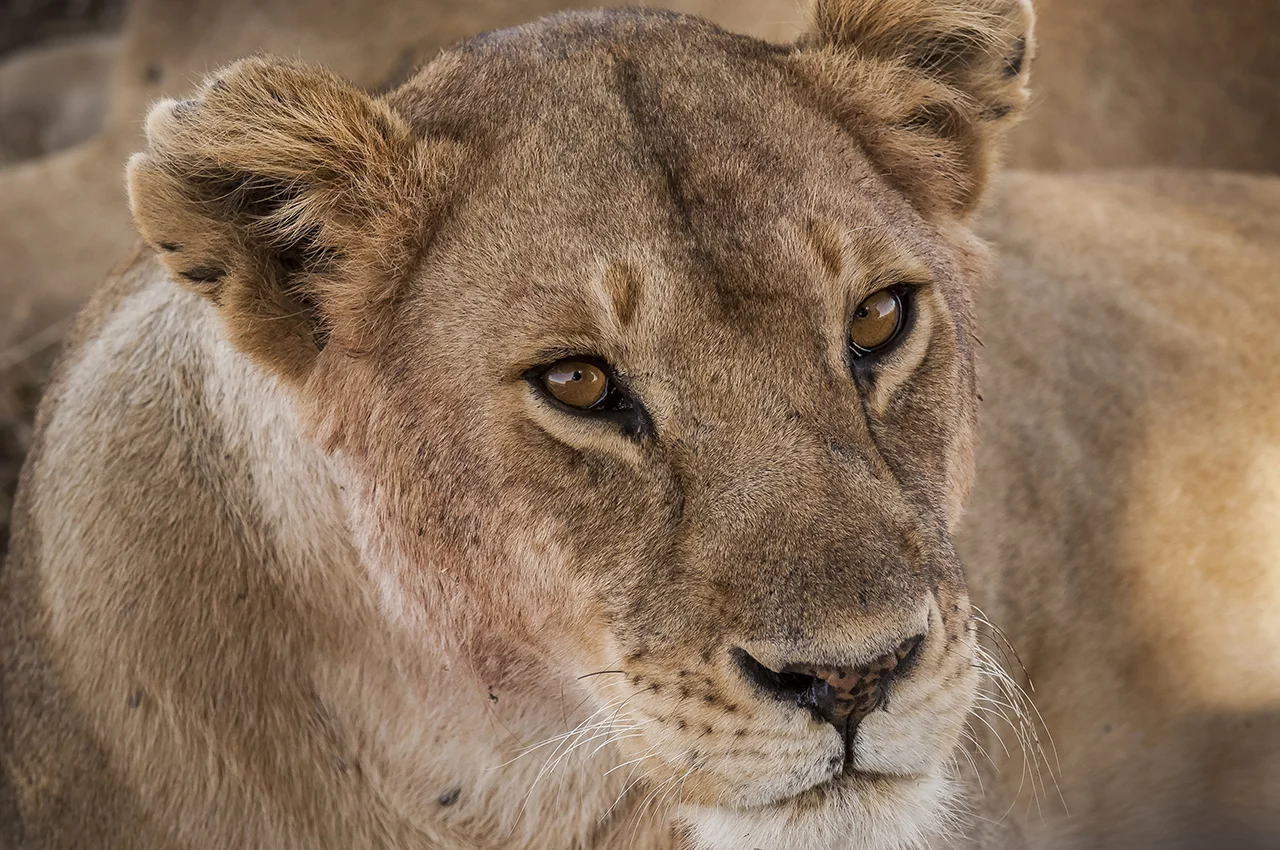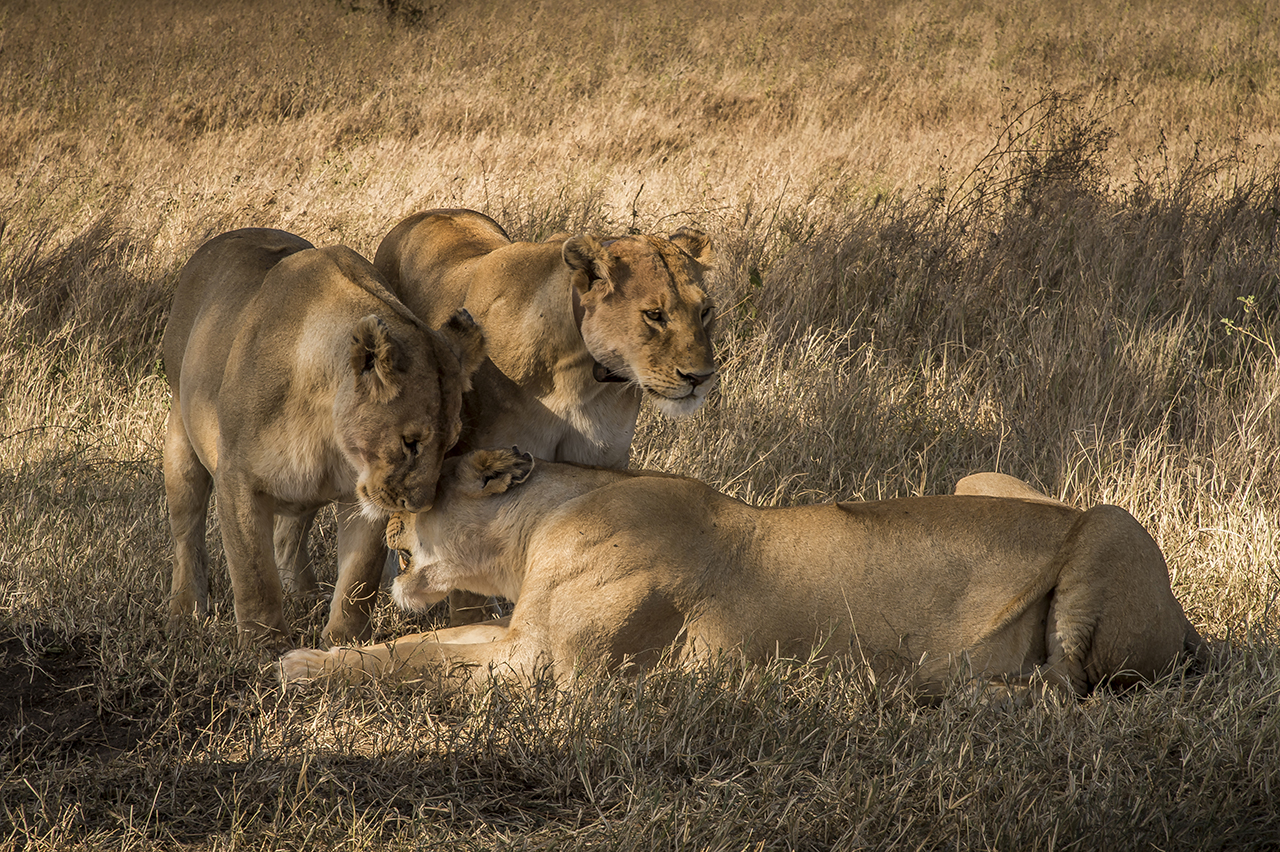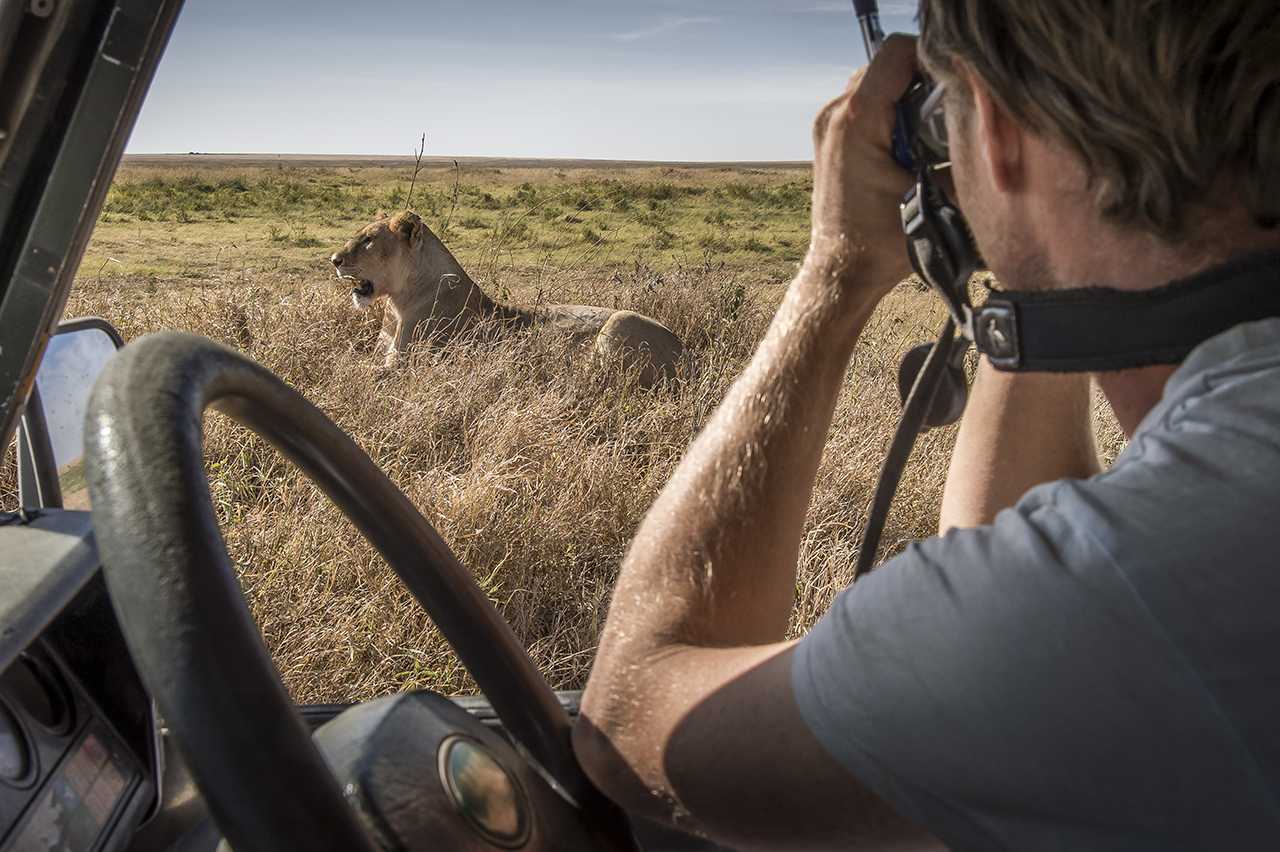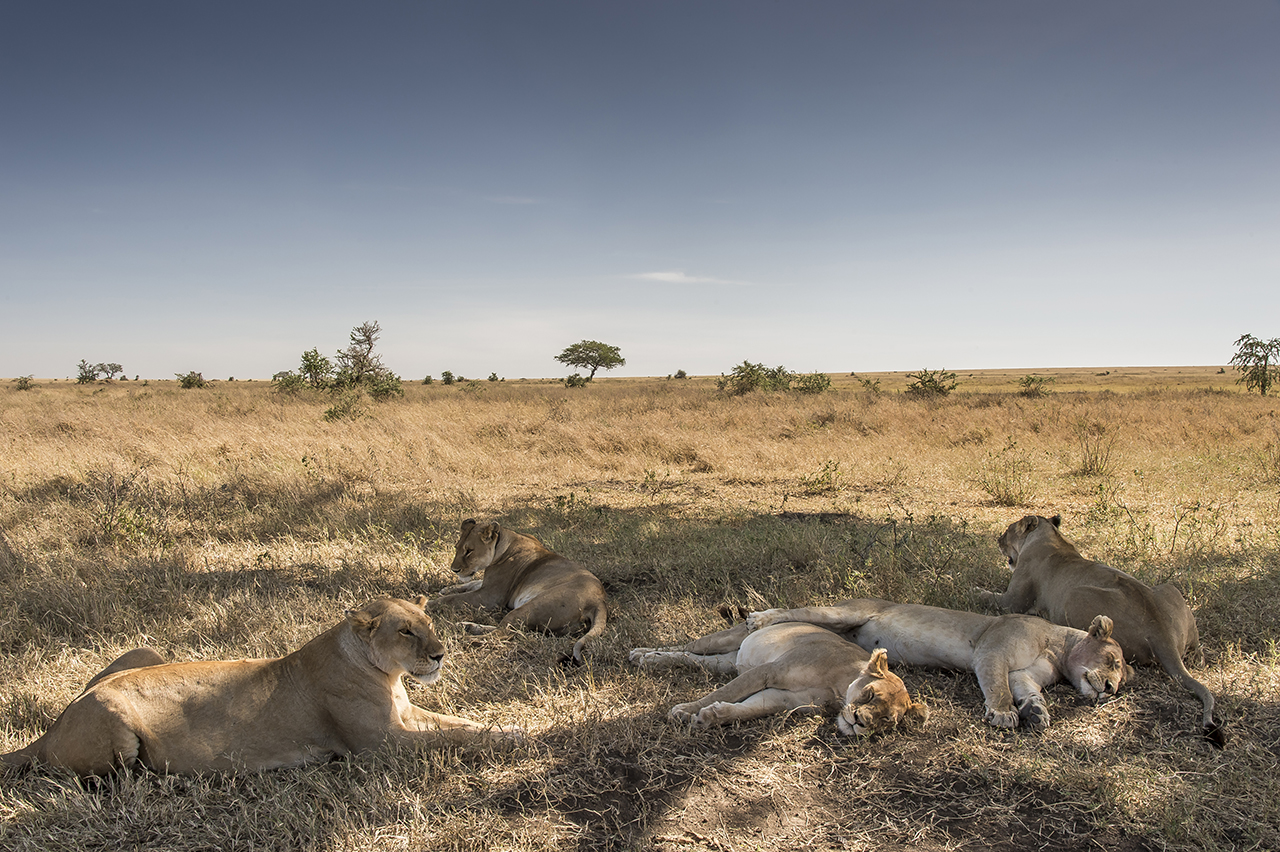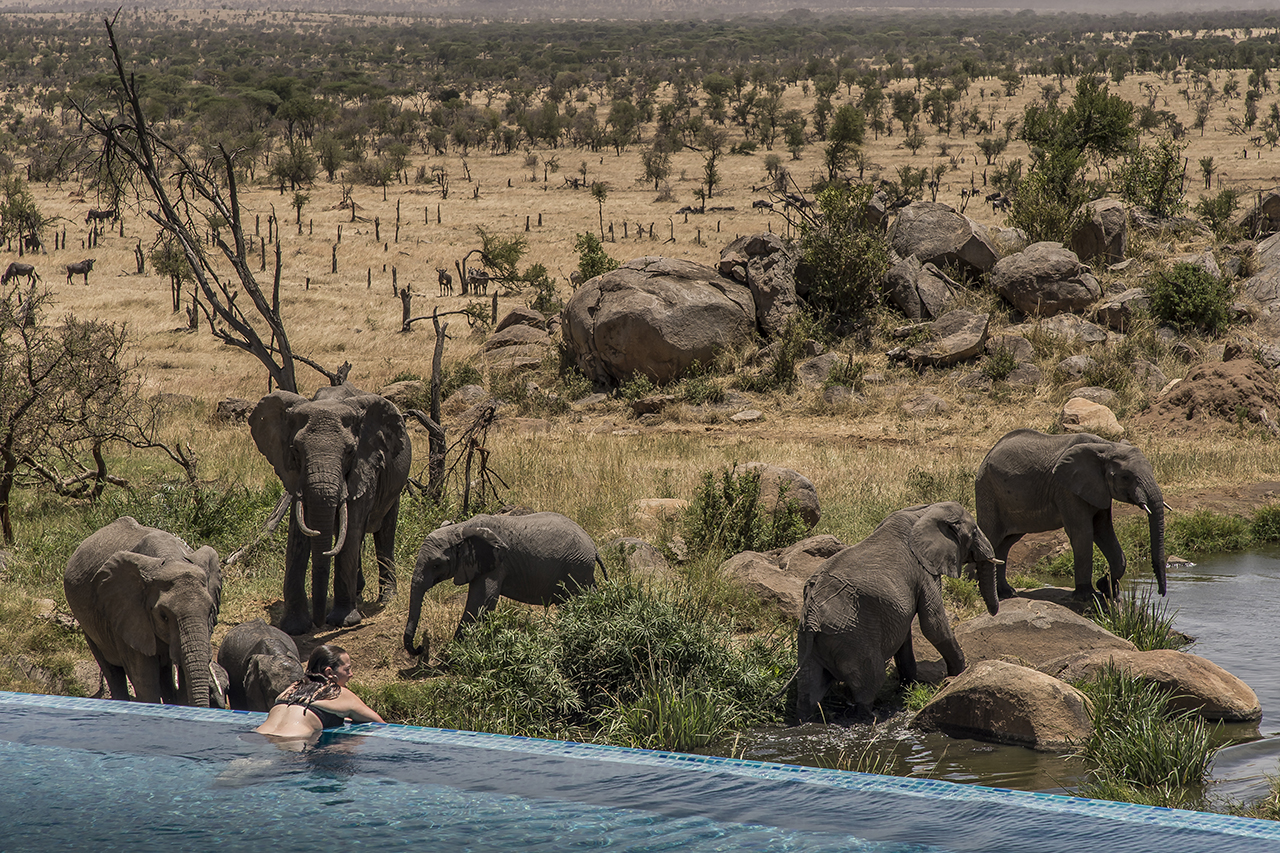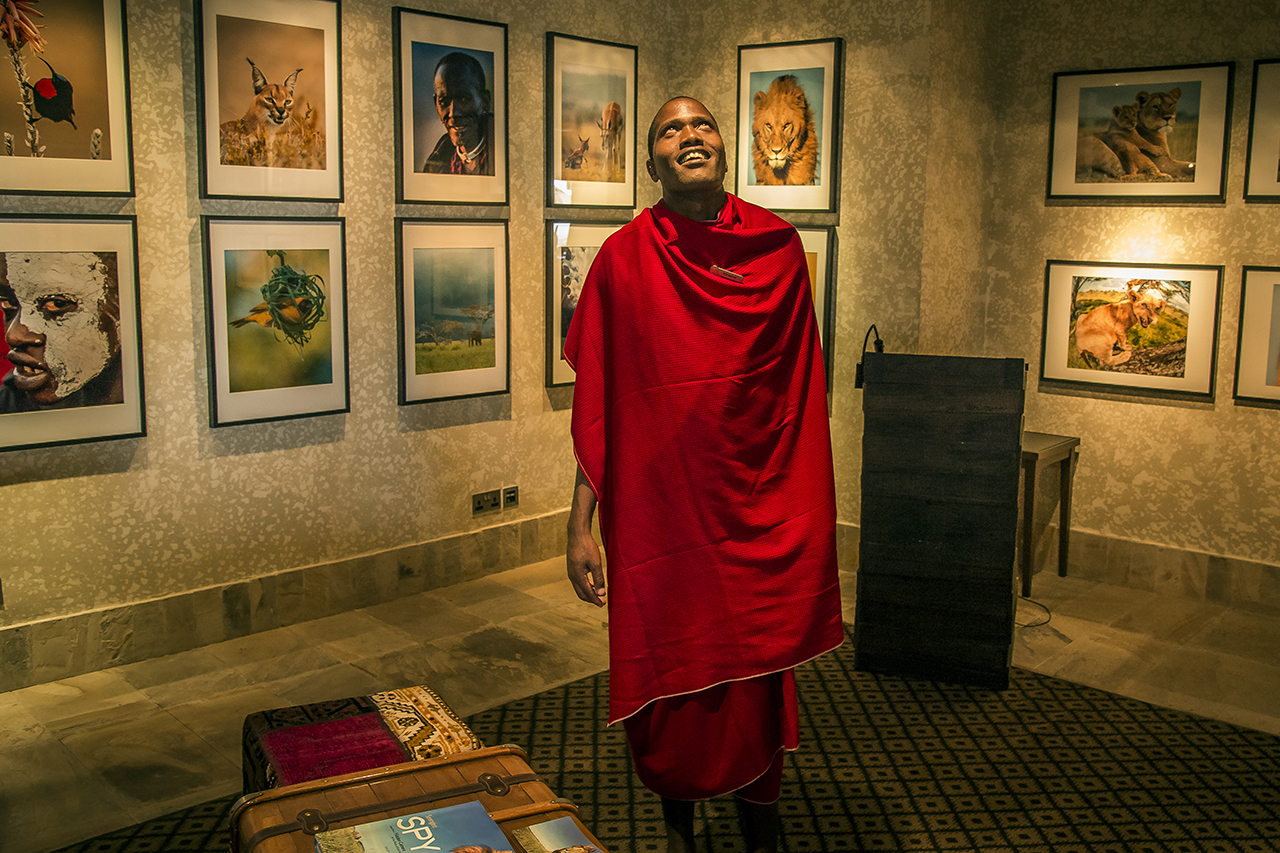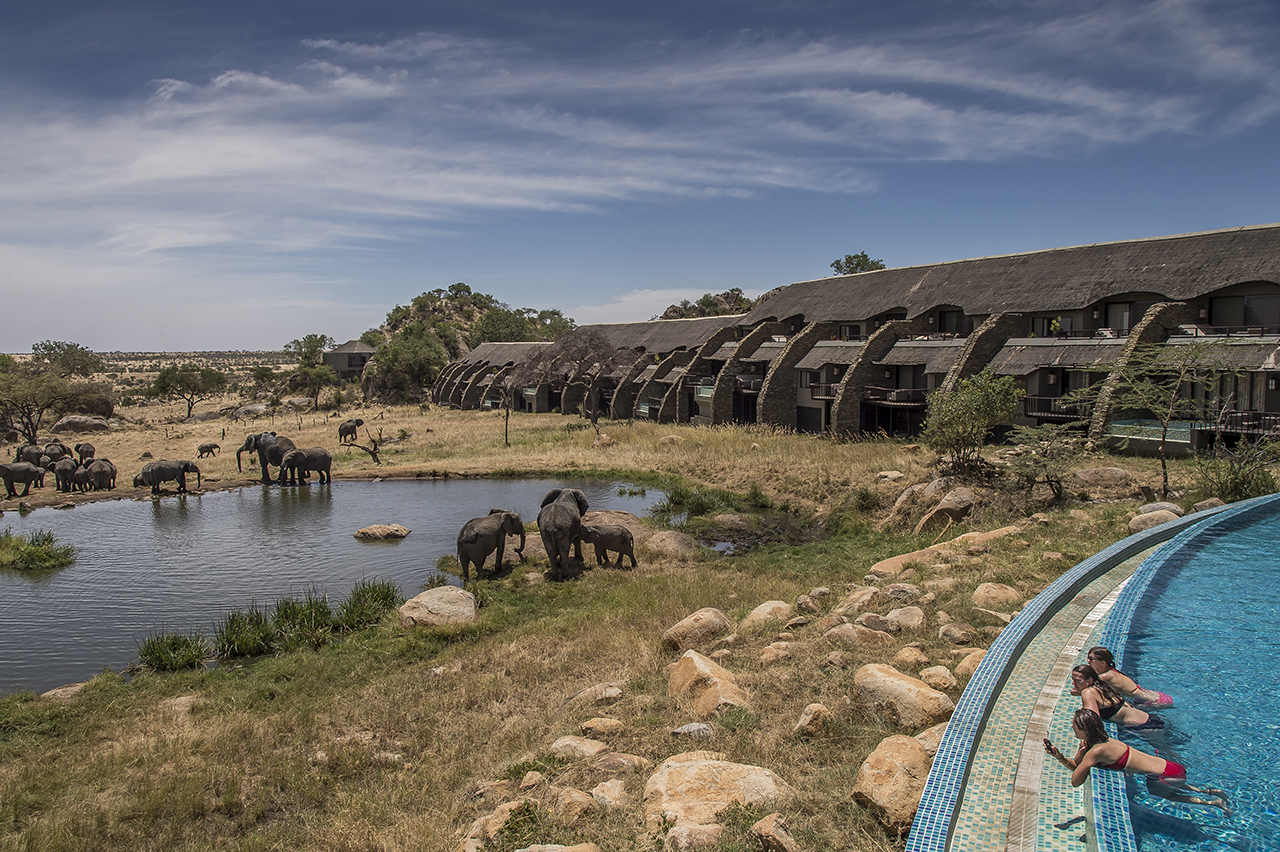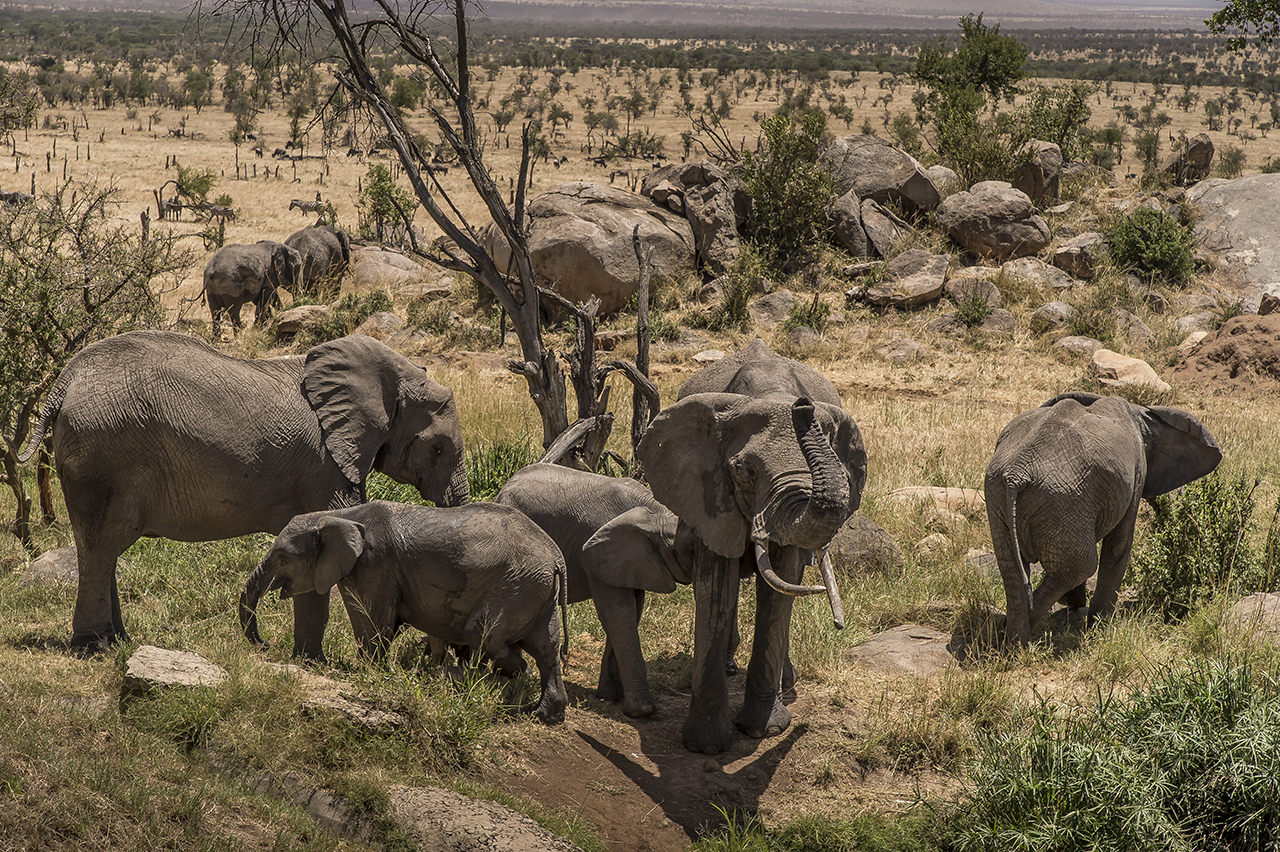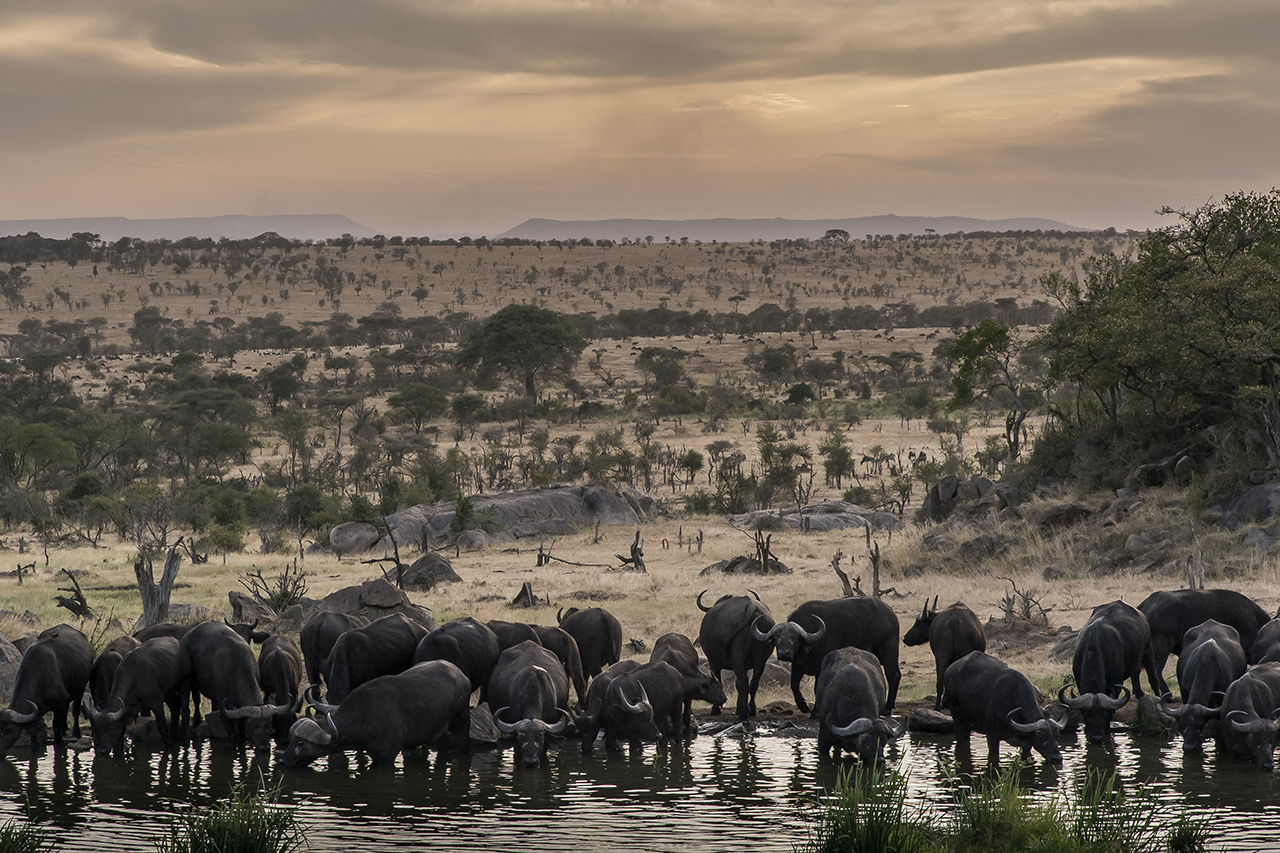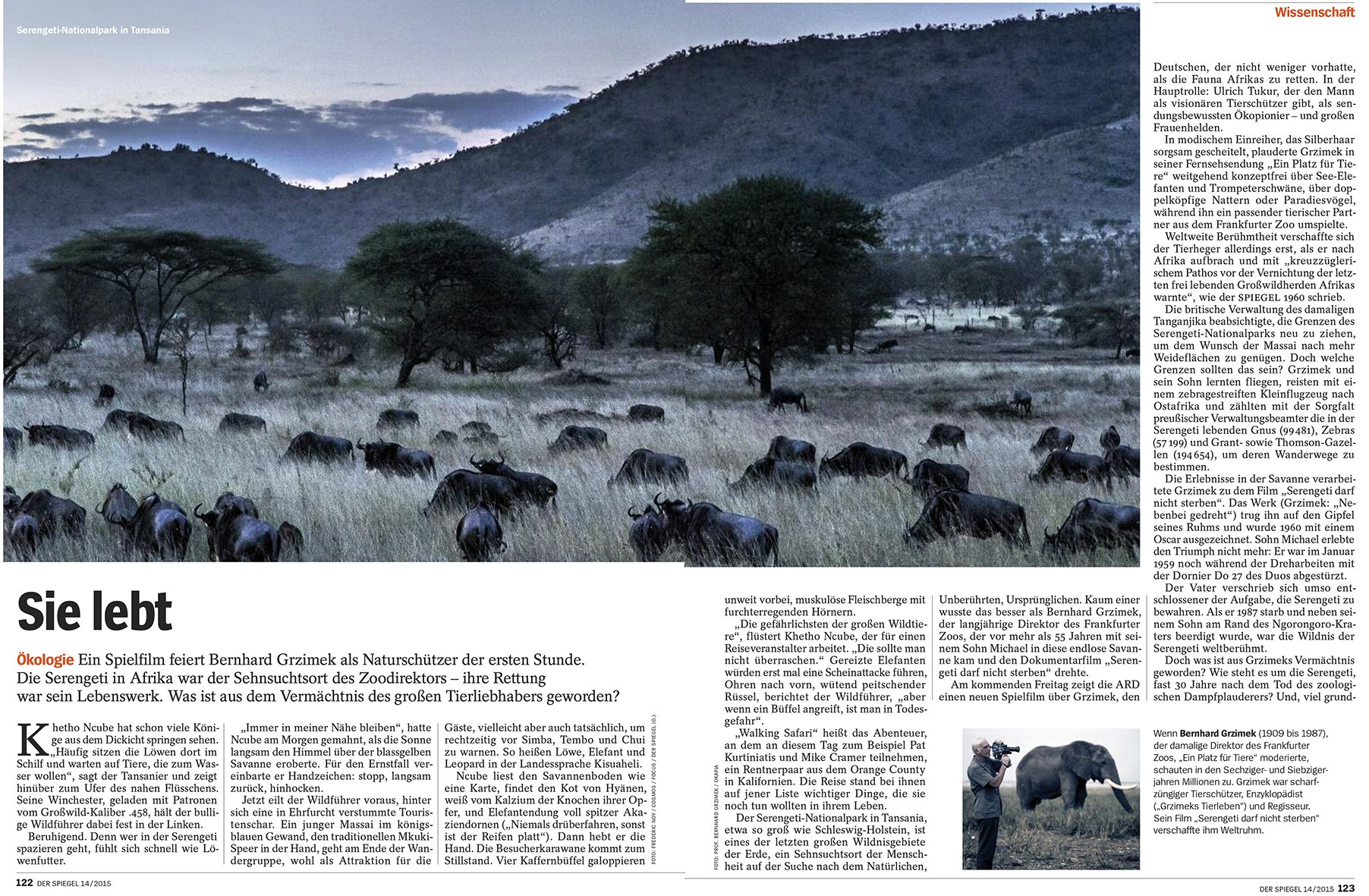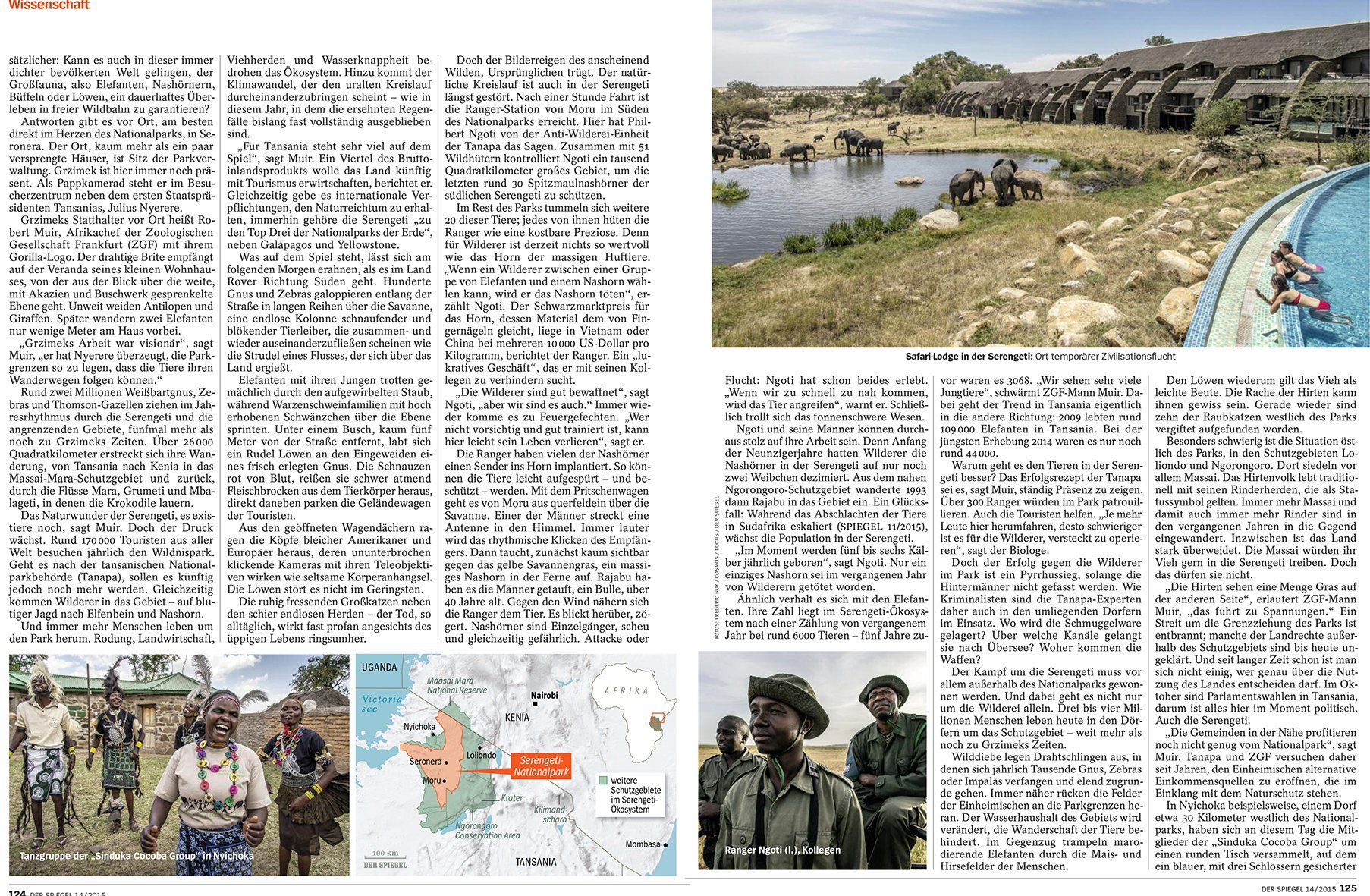The Serengeti is a huge national park in northern Tanzania, in East Africa, covering 14,763 square kilometers. Second animal park in Africa, it is home to about four million animals. The five species of Big Five, lion, leopard, elephant, rhinoceros and African buffalo are present.
The Masai who had been grazing their livestock on the vast grassy plains for millennia called them Siringitu - "the place where the land moves on forever. », allowing the first European explorer, Austrian Oscar Baumann who visited the area in 1892 to name it « Serengeti », a declension of the word used by the Maasai.
The first American to enter the Serengeti, Stewart Edward White, recorded his explorations in the northern Serengeti in 1913. He returned to the Serengeti in the 1920s and camped in the area around Seronera, the actual Serengeti airstrip, for three months. During this time, he and his companions shot 50 lions.
Because the hunting of lions made them scarce, the British colonial administration made a partial game reserve of 3.2 km2 in the area in 1921 and a full one in 1929. These actions were the basis for Serengeti National Park which was established in 1951.
The Serengeti gained more fame after the initial work of Bernhard Grzimek and his son Michael in the 1950s. A half century ago the animal researcher had already recognized the threat people pose to Africa's wildlife. Grzimek saw that as the human population grew, the more difficult it would be to maintain harmony between man and nature.
Nowadays the ecosystem in northern Tanzania is among the best protected national parks in the world. But the threat is far from over. The wilderness is feeling the impact of the modern world. More and more humans are encroaching on its borders: indigenous peoples seeking a livelihood, poachers in search of fast money or tourists looking for a thrill. The latter in particular are both a curse and a blessing, because without tourism the Serengeti could really die. The park is financed largely through visitor admission fees.
For more than 50 years conservationists have been fighting to save the Serengeti. Yet, more than ever, climate change, population growth and poaching are threatening the huge, species-rich symbol of Africa's animal kingdom.
